The University of Melbourne offers two main intakes each year: Semester 1 (February/March) and Semester 2 (July). Semester 1 is the most popular choice for Indian students. Ranked #19 globally (QS 2026), the university attracts students from over 150 countries and offers 400+ undergraduate and graduate programs. While the university does not publish an official acceptance rate, unofficial estimates suggest it ranges between 70–80%, depending on the course. Because admissions are competitive, students should understand course requirements, timelines, and Australia’s student visa process early.
For international applicants, key deadlines are 31 May 2026 for mid-year entry, 31 August 2026 for most graduate programs starting in 2027, and 31 October 2026 for undergraduate programs starting in 2027. Applications are reviewed on a rolling basis. Most students receive a decision within 4–12 weeks after submitting all documents. Applying by these dates also helps with scholarships, faster offers, and smoother visa processing.
Entry requirements vary by program. Indian undergraduate applicants usually need strong Class 12 scores (around 65%–93%, depending on the course). Postgraduate applicants must hold a recognised bachelor’s degree, typically with 65–75% or higher. Applications are submitted through the University of Melbourne’s online portal with an AUD 154 application fee, along with academic transcripts, English test scores (if required), and supporting documents. Early and complete applications improve the chances of timely decisions, especially for high-demand courses.
INR values are calculated using 1 AUD = ₹63.70
Also Check: Univeristy of Melbourne Ranking
- University of Melbourne Admission Deadlines 2026
- University of Melbourne Popular Courses
- How the University of Melbourne Calculates Undergraduate Tuition Fees
3.1 How your fees are calculated
- University of Melbourne Graduate Admission Requirements
- University of Melbourne Undergraduate Admission Requirements
5.1 CBSE (AISSC) / CISCE (ISC) – Minimum Entry Scores
5.2 Recognised Indian State Boards – Minimum Entry Scores
- University of Melbourne MBA 2026
- University of Melbourne Application Process
- University of Melbourne Admission Decisions
- FAQs
University of Melbourne Admission Deadlines 2026
The University of Melbourne offers Semester 1 (February/March) and Semester 2 (July) intakes for both undergraduate and graduate programs. . Applicants are advised to submit their applications early to maximise chances for scholarships, conditional offers, and timely visa processing. Selection considers academic records, work experience (for graduate programs), English proficiency, and supporting documents. The application deadlines for 2026 international students are:
Graduate Admission Deadline
| Intake Type | Intake | Timely Application Closing Date |
|---|---|---|
| Regular / Full Year | 2027 start | 31 August 2026 |
| Mid-Year | 2026 mid-year | 31 May 2026 |
Undergraduate Admission Deadline
| Semester | Intake | Timely Application Closing Date |
|---|---|---|
| Semester 1 | 2027 start (Feb/Mar) | 31 October 2026 |
| Semester 2 | 2026 mid-year (July) | 31 May 2026 |
MBA Admission Deadline
| Round | Description | Application Closing Date |
|---|---|---|
| Early Round | Early applications | 6 October 2025 |
| Round 1 | First round | 1 December 2025 |
| Round 2 | Second round | 2 February 2026 |
| Round 3 | Third round | 30 March 2026 |
| Round 4 | Final offshore international closing | 25 May 2026 |
| Round 5 | Final onshore international & domestic closing | 27 July 2026 |
University of Melbourne Popular Courses
The table below lists popular University of Melbourne courses with their duration, estimated tuition fees, and basic application tips for international students.
| Course Name | Duration | Total Tuition Fees in AUS$ | Total Tuition Fees in INR | Tips for International Students |
|---|---|---|---|---|
| MBA (1.4 K Views) |
2 Years | AUD 120,384 | ₹76.6 lakh | - 2–3+ years full-time professional work experience (average admitted students have 5+ years) - GMAT or GRE score 695+ for competitiveness - 4 strong personal statements explaining career goals - 2 professional reference letters - Prepare for interview focusing on leadership and teamwork |
| MS Data Science (723 Views) |
2 Years | AUD 121,767 | ₹77.5 lakh | - Strong undergraduate grades (65%+ equivalent) - Complete prerequisites: programming, Calculus II, Linear Algebra - Highlight coding projects, internships, or research - Mention plan to address any gaps in math or programming (if any) |
| L.L.M (373 Views) |
1 Year | AUD 60,992 | ₹38.8 lakh | - LLB or JD degree with at least 70% average - Highlight legal work experience, research papers, or publications - Strong personal statement explaining interest in Melbourne LL.M and specialization - Academic or professional reference letters |
| Master Biotechnology (343 Views) |
2 Years | AUD 117,600 | ₹74.9 lakh | - Highlight lab experience, research projects, internships, publications - References from science faculty - Show passion through competitions or relevant extracurriculars |
| M.C.S (238 Views) |
2 Years | AUD 132,250 | ₹84.2 lakh | - UG degree in CS IT or related field - Highlight coding projects - References from CS faculty or employers |
| M.D (218 Views) |
4 Years | AUD 570,732 | ₹3.63 crore | - Excellent undergraduate grades and GAMSAT or MCAT score - Healthcare volunteering, shadowing doctors, research experience - Multiple academic and professional references - Prepare for interview |
| M.S Psychology - Clinical Psychology (210 Views) |
2 Years | AUD 132,250 | ₹84.2 lakh | - Undergraduate degree in psychology or related field with strong grades - Highlight research, mental health volunteering, work experience - Strong statement explaining clinical interest and motivation for Melbourne - Relevant certifications (e.g., counseling courses) add value |
| Master Construction Management (190 Views) |
3 Years | AUD 188,644 | ₹1.20 crore | - Internships or work experience in construction - CV highlighting projects and roles |
| M.S Nursing Science (283 Views) |
2 Years | AUD 92,400 | ₹83.60 lakh | - Bachelor's degree (any field, but health/science background preferred) with strong grades (65%+ equivalent) - Prerequisite anatomy/physiology or related subjects if needed - Highlight any healthcare volunteering, work experience, or caring roles |
| M.Arch (190 Views) |
3 Years | AUD 188,644 | ₹1.20 crore | - Undergraduate degree in architecture or design with portfolio - Strong portfolio with projects, designs, sketches - Architecture internships or work experience - Personal statement on design philosophy and motivation for Melbourne - References from design faculty or employers |
| B.Com (358 Views) |
3 Years | AUD 163,388 - 189,947 | ₹1.04 crore – ₹1.21 crore | - High Class 12 marks (90%+ equivalent) - Strong predicted/actual scores submitted early - Include extracurriculars like business clubs, internships, projects |
| B.Com Accounting (143 Views) |
3 Years | AUD 163,388 - $189,947 | ₹1.03 crore – ₹1.20 crore | - Prerequisite knowledge in accounting/math - Showcase leadership in school/business activities or internships |
| Bachelor of Science [B.S](65 Views) | 3 Years | AUD 164,959 - 197,008 | ₹1.04 crore – ₹1.24 crore | - Highlight science projects, Olympiads, research, or extracurriculars - High Class 12 scores (85–90%+ equivalent, especially in sciences/math) |
| Bachelor of Design [B.Des] Architecture (108 Views) |
3 Years | AUD 145,668 - 189,352 | ₹91.8 lakh – ₹1.19 crore | - Strong Class 12 performance (85%+ equivalent) - Submit a portfolio of creative work (drawings, designs, sketches) - Highlight design-related extracurriculars, courses, or internships |
How the University of Melbourne Calculates Undergraduate Tuition Fees
The University of Melbourne doesn’t charge one fixed price for a whole degree. Instead, you pay for each subject separately. Every subject belongs to a different fee band (Arts, Science, Commerce, etc.), and each band costs a different amount. Since students choose different subjects, everyone’s total fee becomes slightly different that’s why the university shows a fee range instead of one exact number.
How your fees are calculated
Each subject has:
- a study load (how big the subject is)
- a subject fee rate (how expensive that subject type is)
The cost of one subject is calculated like this:
Subject study load (fraction) × Subject fee ($ per study load) = Cost of subject
Most full-time students study 100 credit points per year, which equals 1 EFTSL.
Note: Your annual tuition fee is calculated by adding together the cost of all subjects you enrol in for that year. If your study plan includes more high-cost subjects (such as Science or Engineering), your total fee will be higher. If it mainly consists of lower-cost subjects (such as Arts), your overall fee will be lower.
University of Melbourne Graduate Admission Requirements
The University of Melbourne offers over 400 graduate programs, including 340+ coursework Master’s degrees across fields like business, law, health, engineering, data science, and arts. Popular programs for international students include the MBA, Master of Finance, Juris Doctor, Master of Public Health, Master of Engineering, and Master of Data Science, delivered mainly at Parkville and specialist campuses like Southbank.
Application Portal: University of Melbourne direct online application
Application Fee: AUD 154 (INR 9,724)
Academic Qualification:
- Recognised Bachelor’s degree (3-year or 4-year accepted)
- Minimum academic requirement: Equivalent WAM* 65–75% (varies by course)
- Relevant undergraduate discipline required for many programs
- Use University of Melbourne grade conversion eligibility calculator
* WAM - Weighted Average Mark
English Proficiency Requirements
| Test | Minimum Score |
|---|---|
| IELTS (Academic) | 6.5 overall (no band < 6.0) |
| TOEFL iBT | 81 overall (Writing:19, Speaking:19, Reading:16, Listening:16) |
| PTE Academic | 64 overall (no skill < 60) |
| Cambridge C1 Advanced | 169 overall |
Higher English Requirements (Program-Specific)
| Program Category | English Level | IELTS Requirement |
|---|---|---|
| MBA / Selected Commerce Programs | Level 2 | 7.0 overall (no band < 6.5) |
| Teaching / Nursing / Social Work | Level 2b | 7.0 overall (all bands 7.0) |
| Juris Doctor (JD) | Level 3 | 7.5 overall (no band < 7.0) |
University of Melbourne Undergraduate Admission Requirements
The University of Melbourne offers 38+ undergraduate programs across fields like Arts, Science, Commerce, Biomedicine, and Design, mainly at Parkville. Most degrees are 3 years full-time, with flexible majors/minors. Admission requires completion of Year 12 (or equivalent), meeting minimum subject prerequisites and scores, plus English proficiency for international students.
The admission requirements for undergraduate courses include academic qualifications, course-specific subject prerequisites, and English language proficiency for international students.
Application Portal: University of Melbourne direct online application portal
Application Fee: AUD 154 (non-refundable) ≈ INR 9,724
Academic Requirements:
Direct Entry Accepted From-:
- CBSE – All India Senior School Certificate (AISSC)
- CISCE – Indian School Certificate (ISC)
- Recognised State Boards only:
- Tamil Nadu HSC
- Maharashtra HSC
- Karnataka PUC
Not Eligible for Direct Entry:
- Other Indian state boards
- Applicants not meeting minimum academic scores or subject prerequisites
Note:- Entry scores are calculated as the average percentage of the best four final-year subjects, with non-academic subjects potentially excluded from assessment. To be eligible for admission, applicants must meet the published minimum entry score, successfully complete all course-specific subject prerequisites, and satisfy the University of Melbourne’s English language requirement.
CBSE (AISSC) / CISCE (ISC) – Minimum Entry Scores
| Course | Minimum % | Required Subjects |
|---|---|---|
| Agriculture | 65 | English, Mathematics |
| Arts | 65 | English |
| Biomedicine | 80 | English, Chemistry, Mathematics |
| Commerce | 81 | English, Mathematics |
| Design | 70 | English |
| Fine Arts | N/A* | English |
| Music | N/A* | English |
| Oral Health | 94 | English + Biology or Chemistry |
| Science | 75 | English, Mathematics + Biology/Chemistry/Physics |
* Fine Arts & Music: Academic eligibility plus mandatory portfolio or audition.
Recognised Indian State Boards – Minimum Entry Scores
(Tamil Nadu HSC, Maharashtra HSC, Karnataka PUC only)
| Course | Minimum % | Required Subjects |
|---|---|---|
| Agriculture | 75 | English, Mathematics |
| Arts | 75 | English |
| Biomedicine | 90 | English, Chemistry, Mathematics |
| Commerce | 93 | English, Mathematics |
| Design | 85 | English |
| Fine Arts | N/A* | English |
| Music | N/A* | English |
| Oral Health | 95 | English + Biology or Chemistry |
| Science | 85 | English, Mathematics + Biology/Chemistry/Physics |
English Proficiency Requirements
Standard UG Courses
| Test | Minimum Score |
|---|---|
| IELTS (Academic) | 6.5 overall (no band < 6.0) |
| TOEFL iBT | 81 overall |
| PTE Academic | 64 overall (no skill < 60) |
| Cambridge C1 | 169 overall |
Oral Health (Higher Requirement)
| Test | Minimum Score |
|---|---|
| IELTS (Academic) | 7.0 overall (all bands 7.0) |
| TOEFL iBT | 94 |
| PTE Academic | 72 (Writing 75) |
Documents Required
- Class 12 academic transcripts / certificates
- English proficiency score report (if required)
- Passport
- Portfolio / Audition (Design, Fine Arts, Music)
University of Melbourne MBA 2026
The MBA at the University of Melbourne is delivered through Melbourne Business School (MBS), the University’s graduate business school. According to the QS Global MBA Rankings, the Melbourne MBA is ranked #31 globally and #1 in Australia. MBS offers multiple MBA formats, including the Full-time MBA, Online MBA, Part-time MBA, Executive MBA, and Senior Executive MBA. For international students, the Full-time MBA is the primary on-campus option and is completed in up to two years, while the Online MBA is available for offshore study. Admission to the program is competitive and is assessed on academic background, professional work experience, GMAT/GRE scores, English proficiency, and supporting documents, which are outlined below.
| Requirement Area | Specific Criteria |
|---|---|
| Application Portal | Apply directly via Melbourne Business School (MBS) |
| Application Fee | AUD 154 (non-refundable) INR 9,724 |
| Academic Qualification & GPA | Bachelor’s degree (or equivalent) from a recognised university; no fixed minimum GPA stated, but a strong academic record is expected |
| Work Experience | Minimum 2 years full-time professional work experience |
| GMAT / GRE | Required for Full-time MBA Competitive GMAT: ~695+ Indicative minimum: GMAT 560 or GRE 310 (Q157, V152) |
| English Proficiency | IELTS (Academic): 7.0 overall, no band < 6.5 TOEFL iBT: ~91–102 overall (section minimums apply) Cambridge C1 Advanced: ~178–185 overall |
| Indian Applicants | Indian degrees taught in English do not automatically exempt English test requirement |
| Supporting Documents | CV, academic transcripts, degree certificates, work-experience proof Personal statements/essays 2–3 academic/professional references |
| Interview | Can be required for shortlisted applicants |
How Applications Are Evaluated:
Selection is holistic and competitive. The committee reviews your academic background, previous studies, work experience, references, and personal statements as a whole, and may request additional details if needed. Shortlisted applicants are invited for an interview, which plays a key role in the final decision, and meeting the minimum entry requirements does not guarantee admission.
Also Check our guide on the Australian student visa process.
University of Melbourne Application Process
- Explore courses on the University of Melbourne website and choose your program.
- Check that you meet the academic and English requirements.
- Collect your documents (marksheets, passport, SOP, CV, test scores, etc.).
- Apply online and pay the application fee.
- Wait for your offer letter (conditional or unconditional).
- Accept the offer and pay the required deposit.
- Receive your Confirmation of Enrolment (CoE).
- Buy Overseas Student Health Cover (OSHC).
- Apply for the Australian student visa (Subclass 500).
- Enrol in subjects, attend orientation, and arrive in Australia.
University of Melbourne Admission Decisions
The University of Melbourne does not have a fixed decision deadline. Applications are reviewed on a rolling basis once all documents are submitted, and most international students receive a result within 4 to 12 weeks. The processing time depends on how early and complete your application is, as well as course demand. Although there is no set offer release date, applying by the official closing dates helps ensure timely decisions, scholarship consideration, and seat availability: 31 May 2026 (mid year intake), 31 August 2026 (graduate start year 2027), and 31 October 2026 (undergraduate start year 2027). Since deadlines can differ by course, always check the individual program page for exact dates.
Ranked #19 in the world (QS 2026), the University of Melbourne draws students from 150+ countries and offers over 400 programs across business, science, engineering, law, medicine, and more. Students choose Melbourne not just for its rankings, but also for strong teaching, modern labs and libraries, and flexible study options. With annual tuition starting around AUD 40,000, plus access to scholarships and wellbeing support, the university balances academic quality with student care. Located in central Melbourne, it also gives students city access, career exposure, and one of Australia’s most active campus lives—making it a practical choice for international study.
FAQs
Ques: Can I apply to the University of Melbourne if my final academic results or English test scores are still pending?
Ans: You can apply using predicted marks or provisional transcripts. Most students receive a conditional offer, which means you’ll need to submit your final results or English scores later. Once you meet these conditions by the given deadline, your offer becomes unconditional and you can receive your Confirmation of Enrolment (CoE). For Indian students, predicted Class 12 marks or provisional bachelor’s results are usually accepted.
Ques. Do I need to attend an interview for the University of Melbourne, and which courses require one?
Ans: Most coursework programs at the University of Melbourne do not require interviews. However, some competitive or professional courses do, such as the MBA (focused on leadership and work experience), MD/Medical programs (via GAMSAT or MCAT pathways), and selected graduate programs like Clinical Psychology or Education. If an interview is required, shortlisted applicants are invited after initial assessment, usually online for international students. Details are listed on each course page under “How to apply” or “Entry requirements,” and it’s important to prepare by reviewing your personal statement, experience, and motivation for the course.
College Student Profiles
University of Melbourne Program Fees & Deadlines
| Program | Important Dates | Fees | Application Fees | Eligibility | Financial Aid |
|---|---|---|---|---|---|
MBA 2 years | Clemenger BBDO Scholarship Deadline (25th Mar 2026) Round 3 Application Deadline For 2026 Intake (30th Mar 2026) Round 4 Application Deadline For 2026 Intake(off-shore) (25th May 2026) Round 5 Application Deadline For 2026 Intake(on-shore) (27th Jul 2026) | USD 84,269 /Yr AUD 120,384 /Yr | - | GMAT- 695, TOFEL - 91, IELTS- 7.0, PT - 72 | |
MS Data Science 2 years | March 2026 intake Application Deadline (30th Sep 2026) | USD 42,618 /Yr AUD 60,883 /Yr | - | IELTS:6.5, TOEFL: 79, PTE: 64 | |
B.Com 3 years | Mid-year Application Deadline For 2026 Intake (31st Mar 2026) Start year Application Deadline For 2027 Intake (31st Oct 2026) | USD 36,652 /Yr AUD 52,360 /Yr | 150 | TOEFL- 81 | IELTS- 6.5 | PTE- 64 | |
L.L.M 1 year | Late Application Deadline for July 2026 Intake (31st Mar 2026) | USD 42,694 /Yr AUD 60,992 /Yr | 150 | IELTS: 7.0 | TOEFL: 91 | PTE: 72 | |
Master Biotechnology 2 years | Application Deadline for July 2026 Intake (31st May 2026) Application Deadline for March 2027 Intake (31st Oct 2026) | USD 39,200 /Yr AUD 56,000 /Yr | 150 | TOEFL- 81 | IELTS- 6.5 | PTE- 64 | |
M.S Nursing Science 2 years | Summer (February intake) applications due (31st Aug 2026) | USD 30,800 /Yr AUD 44,000 /Yr | 154 | IELTS: 7.0, TOEFL: 94, PTE: 72 | |
M.C.S 2 years | Application Deadline for March 2027 Intake (30th Nov 2026) | USD 44,083 /Yr AUD 62,976 /Yr | 154 | TOEFL- 81 | IELTS- 6.5 | PTE- 64 | |
M.D 4 years | Application Deadline For January 2027 Intake (15th Jun 2026) | USD 86,083 /Yr AUD 122,976 /Yr | 150 | 65% in Bachelors, TOFEL: 94, IELTS: 7.0, PTE: 72 | - |
Application Deadline For 2026 Intake (31st Aug 2026) | USD 44,083 /Yr AUD 62,976 /Yr | - | TOEFL- 94 | IELTS- 7 | PTE- 72 | ||
Application Deadline for July 2026 Intake (31st Mar 2026) Application Deadline for March 2027 Intake (30th Nov 2026) | USD 39,894 /Yr AUD 56,992 /Yr | - | TOEFL- 81 | IELTS- 6.5 | PTE- 64 |
Do you think the Dates are wrong ? Report Here
Important Alerts
| Events | Dates |
|---|---|
| Software Engineering Application Deadline for July 2026 Intake | Closing in 9 days |
Course Finder - Search from 50K+ courses
Popular Streams:
Reviews
Most Popular Tags
58 Reviews Found
Likes
- Learning Environment: There was a perfect balance between academics and extracurricular activities, and this is the most important fact for all-round development.
- Mentoring by Faculty: Professors were the most engaging and helpful and were willing to stay back after classes. Tutors also provided great attention to everyone and promoted learning at a fundamental level.
- Diverse Peer Group: Engaging with classmates from different backgrounds, as with any foreign university, provided me with a fresh perspective at things. Most importantly, so many activities were always happening around the campus, which provided great networking opportunities.
Dislikes
- Abundance of Choice: There are numerous numbers of core and elective subjects that one can choose and in doing so, students keep on shuffling their subjects semester-to-semester which makes it harder for same sets of students to overlap in multiple semesters. It makes long term networking within the classrooms harder.
- Red-tapism: For various student services like changing subjects, changing scheduled classes, applying for absences etc., there was a faceless mechanisms of application which made it harder to express certain predicaments and often meant, delayed responses or ambiguity in solutions.
- Lack of career support: There weren’t many opportunities offered by the uni which helped directly in networking with industry recruiters or options available for on-campus placements post-degree completion. This made it difficult to secure a job before the degree ended.
Scholarship
- No, I didn't receive any scholarship during my course.
- It was really, really hard to get any scholarship from Unimelb, and a select few scholars could get 10-15K AUD scholarships with almost perfect grades.
- On average, 1 student per 1000 students must have gotten a scholarship, and it was really unheard of that people were getting scholarships. I met only one person who had a Chancellor's scholarship, which was approx. 20K AUD but he had perfect grades since high school so the chances are bleak.
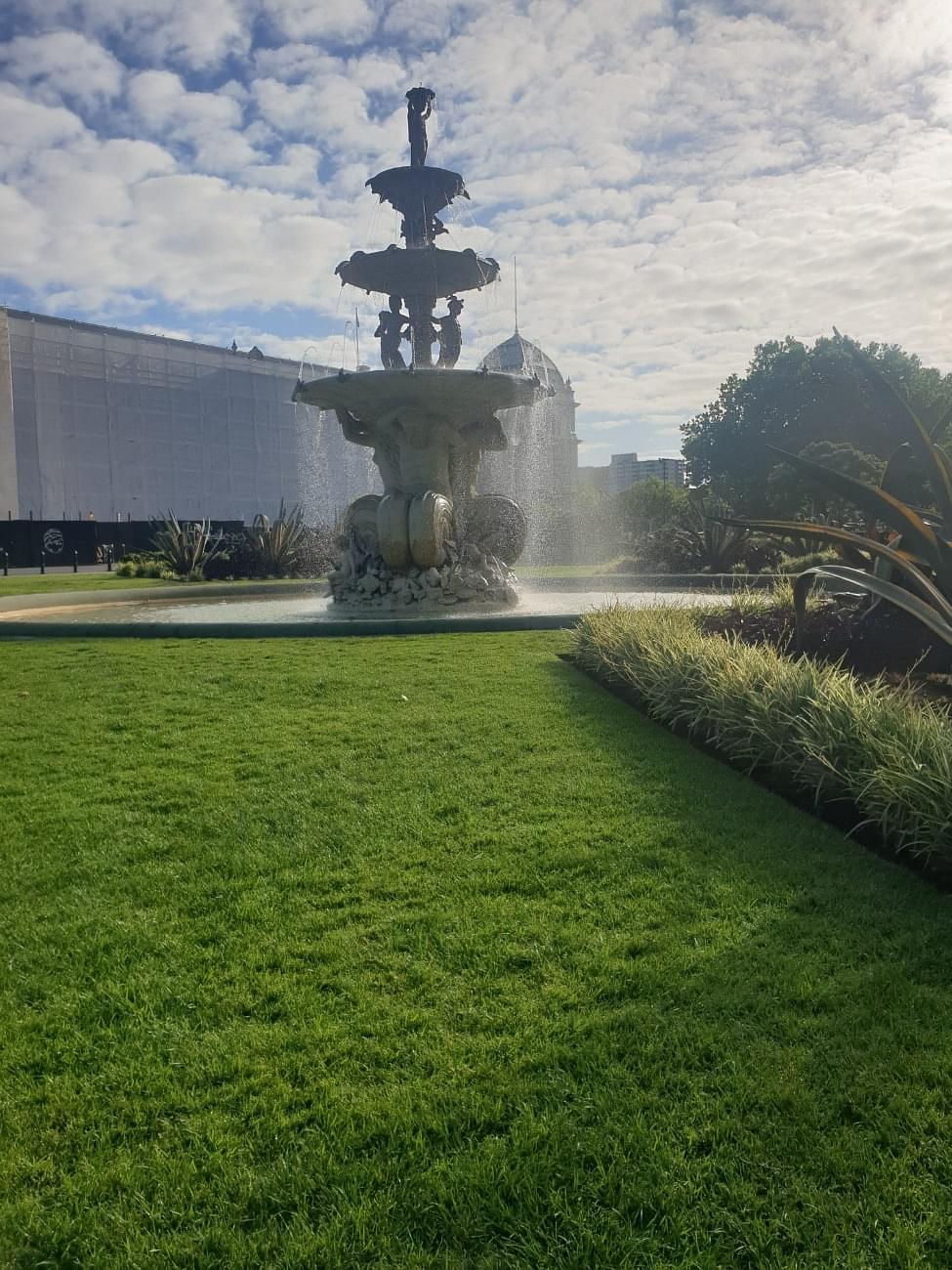
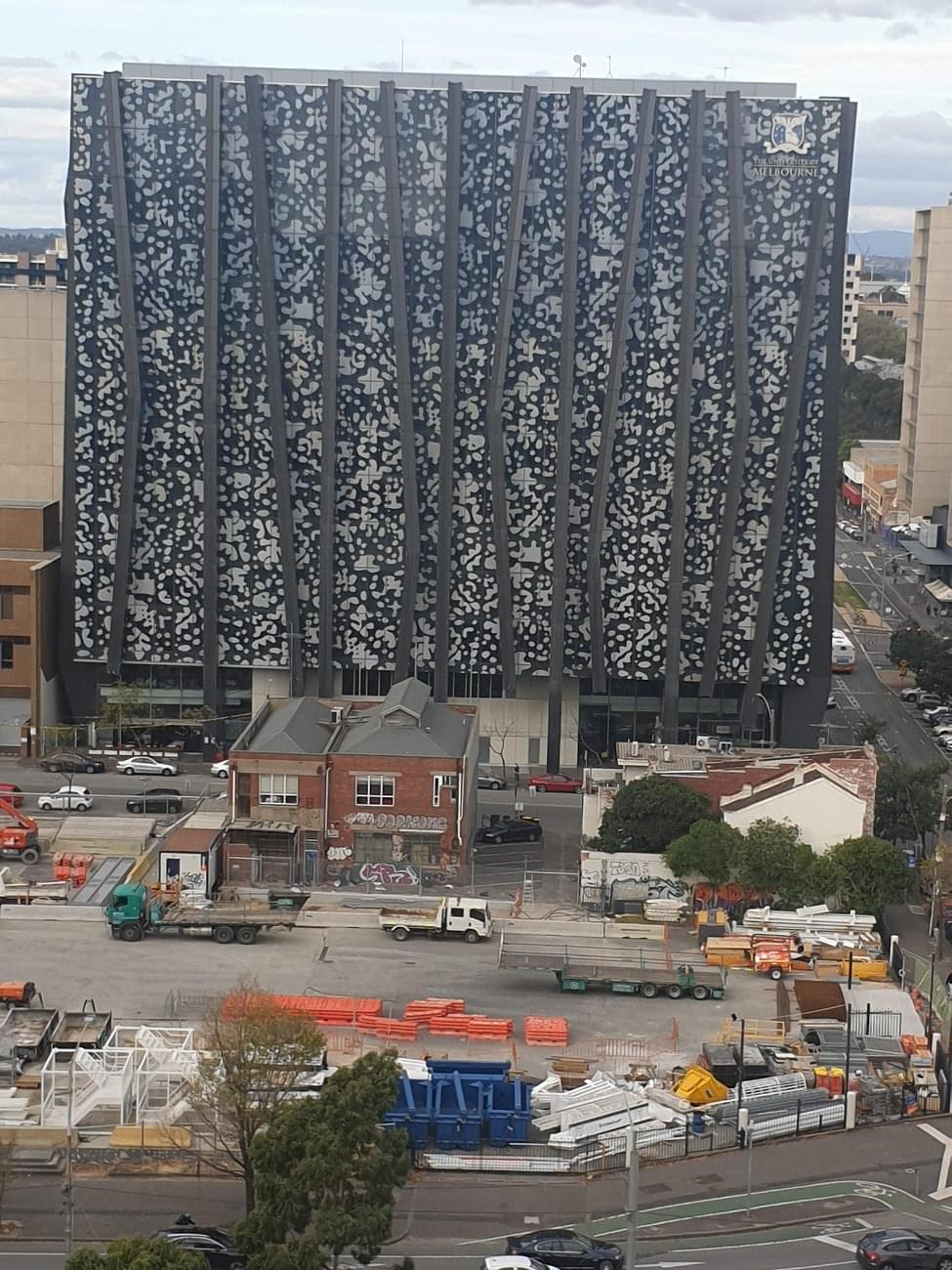
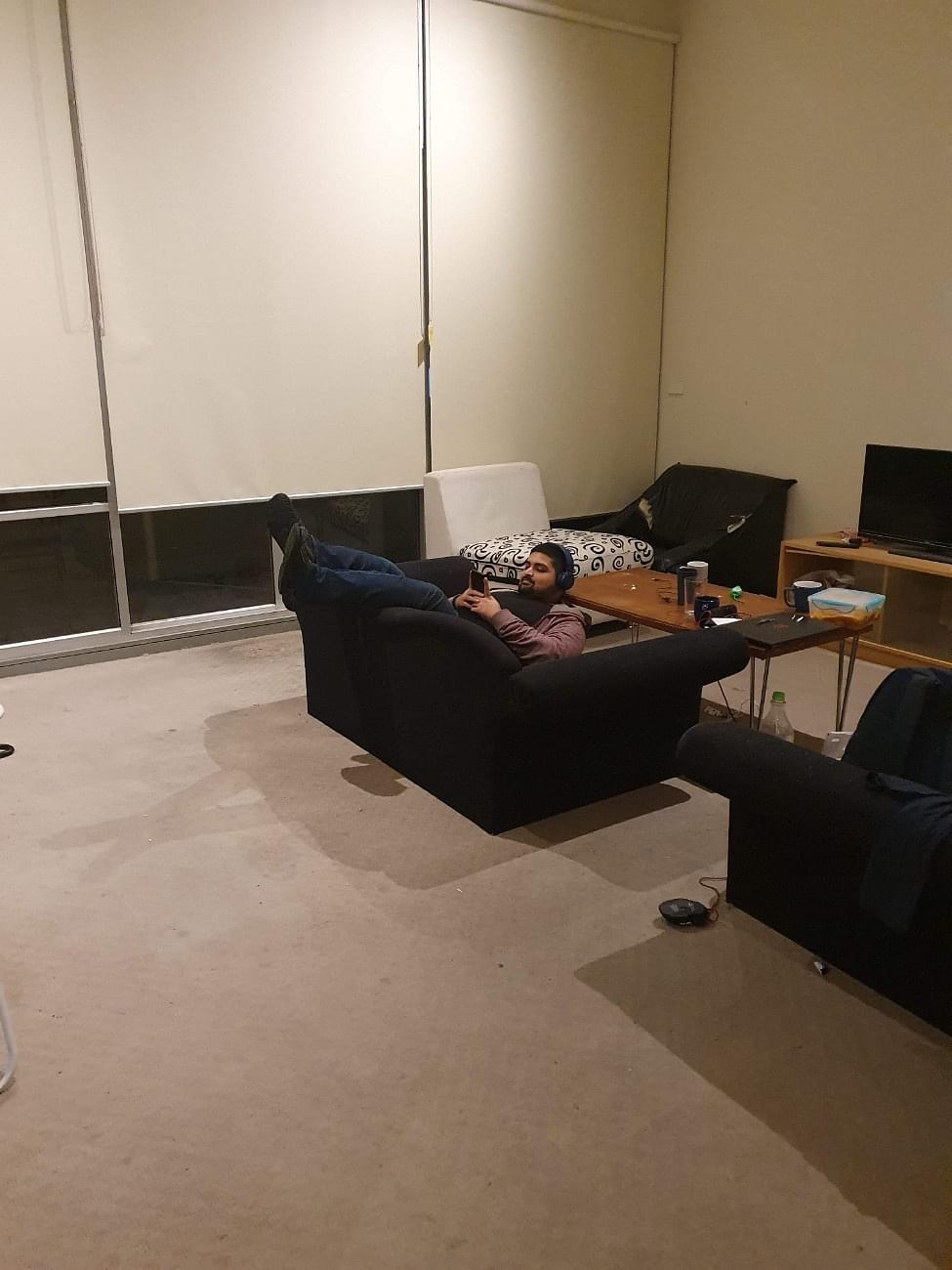
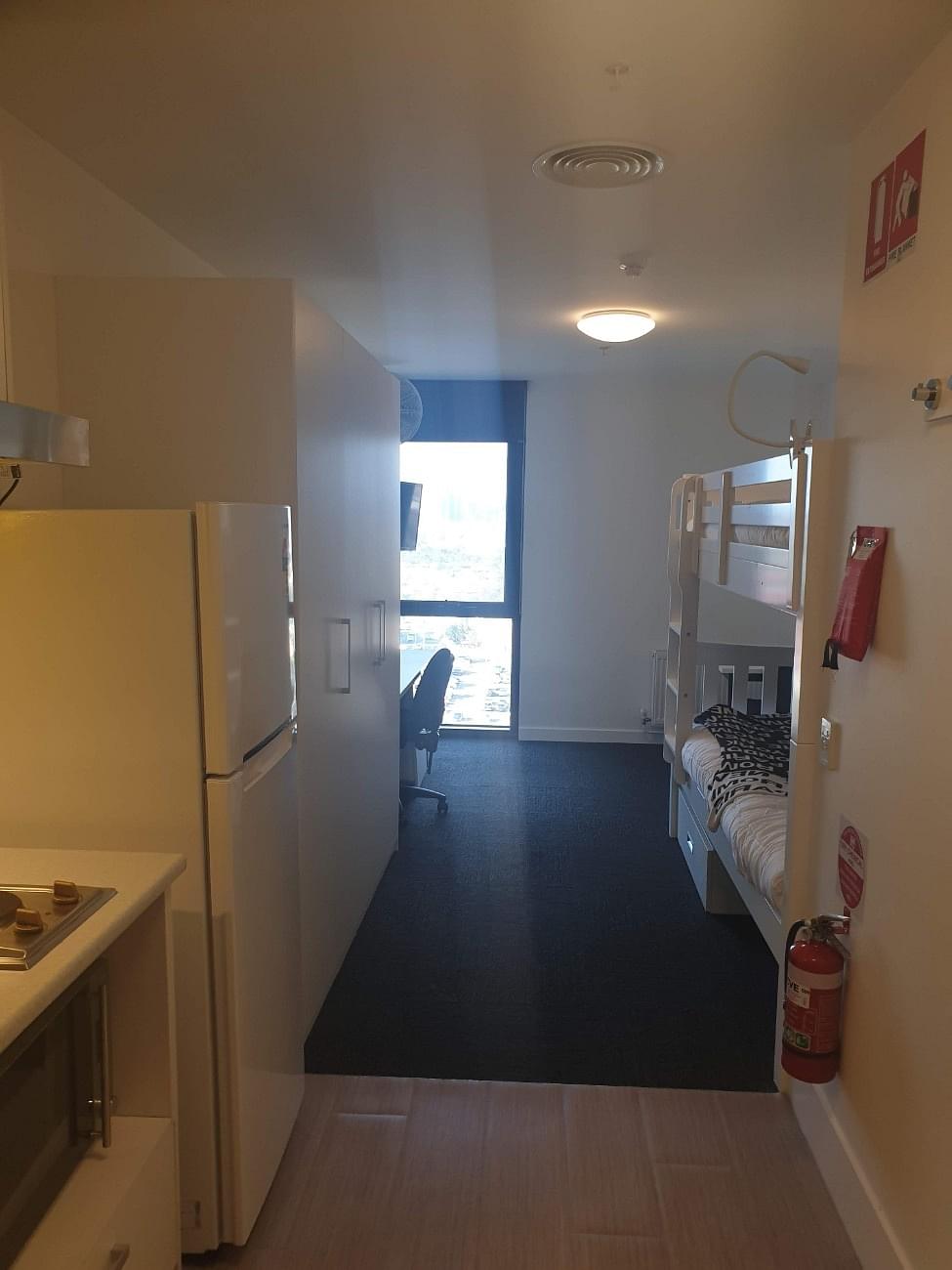
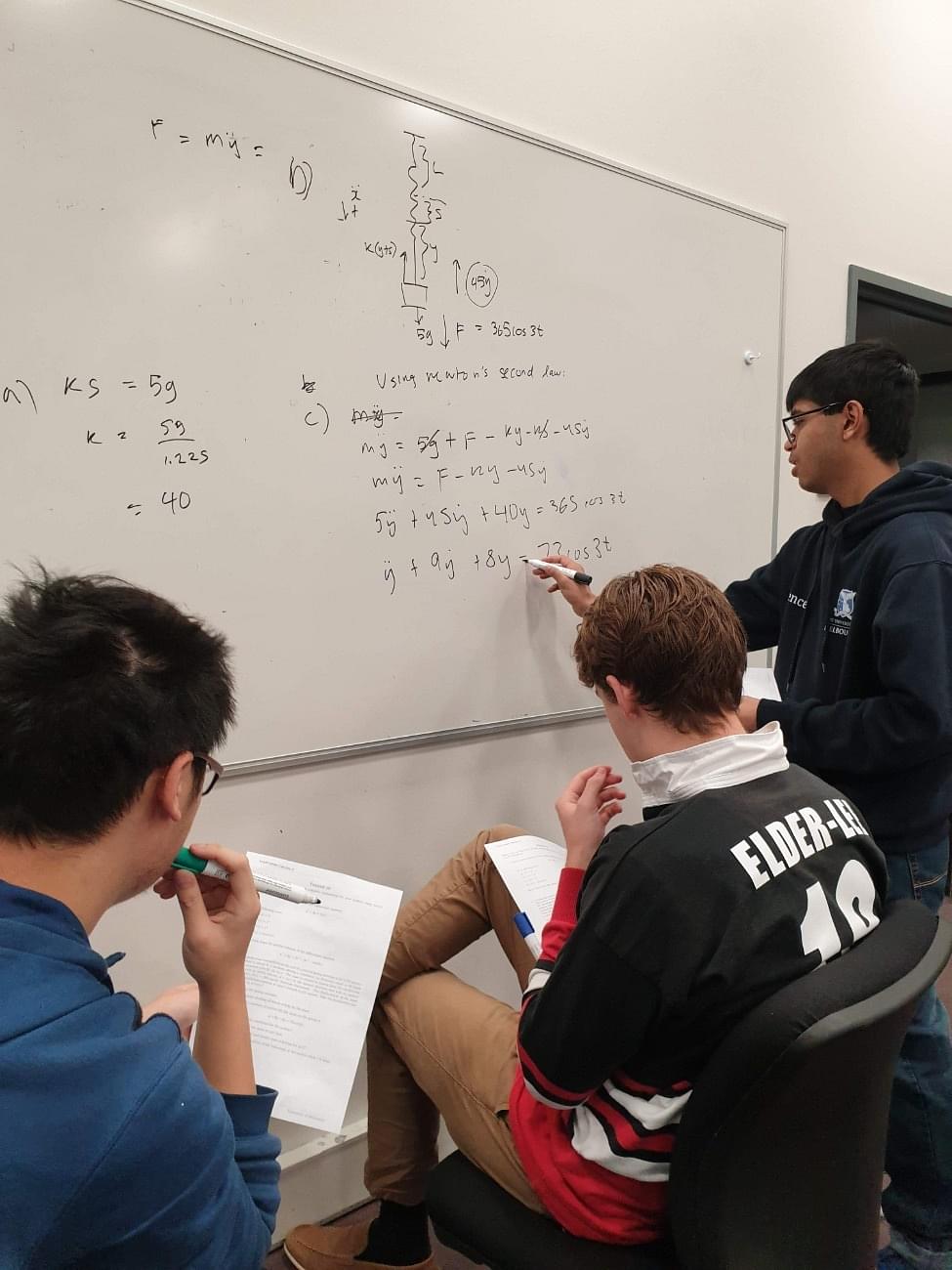
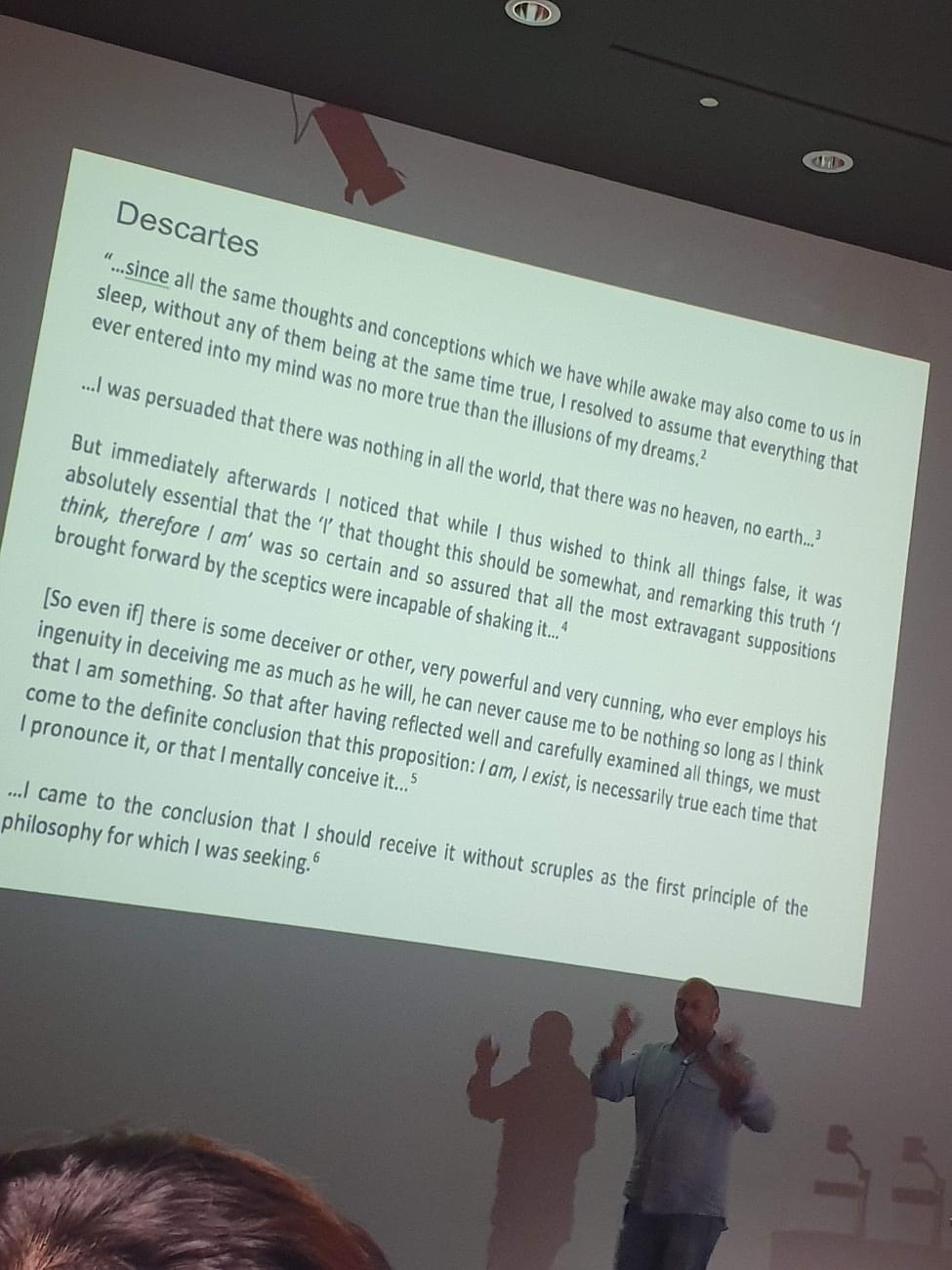
Dislikes
- Lack of affordable housing, too many students who won't speak English. Male sure you find a good group early on.
Likes
- Flexibility in choosing subjects
- Great campus location, very close to the city
- Great campus culture and student associations
Dislikes
- Very Asia continent dominated - especially for student
- Some subjects are entry level and not at masters standard
- Few scholarships options
Scholarship
- Yes, scholarships for masters of management are auto-granted; there are no separate applications. The Business and Economics Graduate Scholarship is offered to students enrolled in a graduate coursework degree with the Faculty of Business and Economics in recognition of their academic achievements. There are two types: 25% and 50%.
- I received a 25% merit-based scholarship and so have 5 of my friends, and I know of 2 people who have a 50% scholarship as well.
- This % is cut from the fees each semester before the semester's invoice is sent, so it is a discount, not money given back later.
- No disclosure is given for how many students, on average, receive scholarships each year, but the typical award amount is 25%.
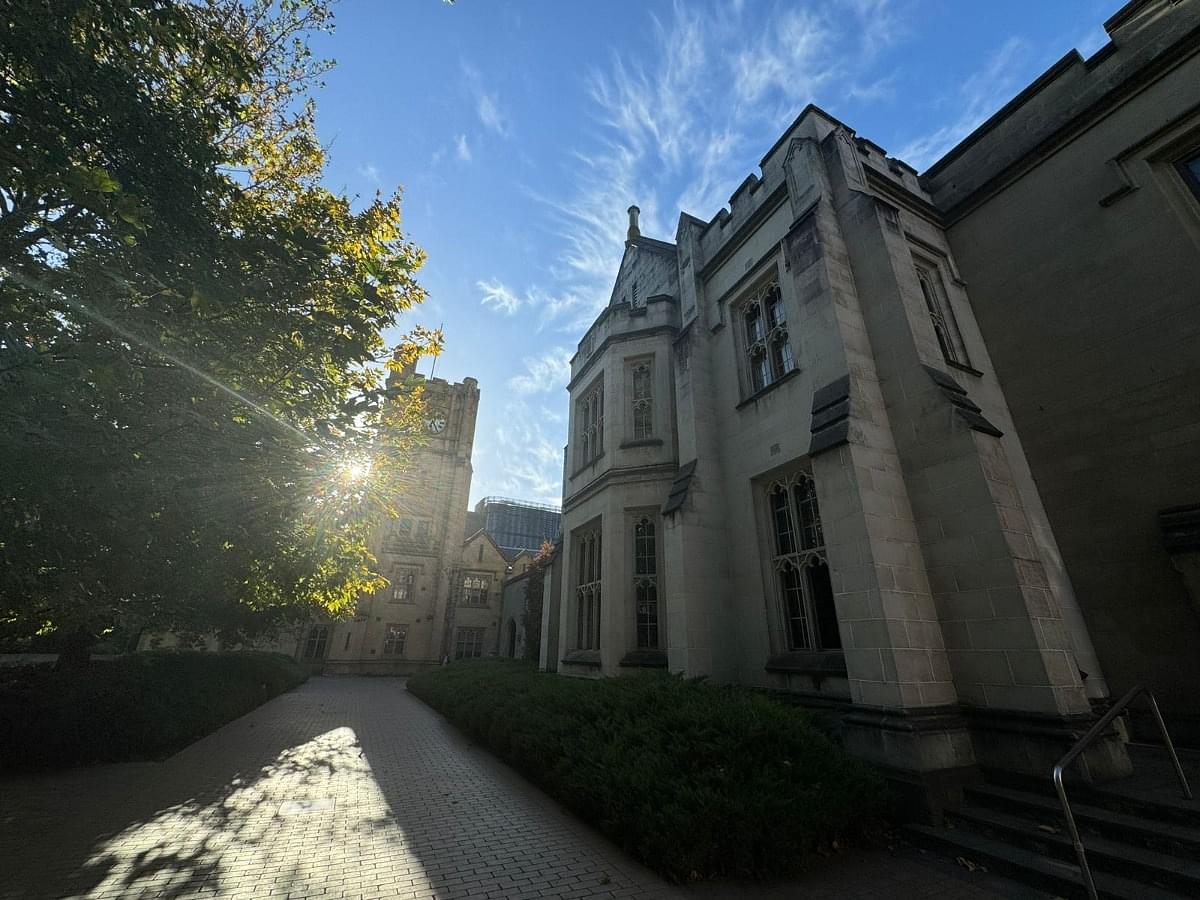
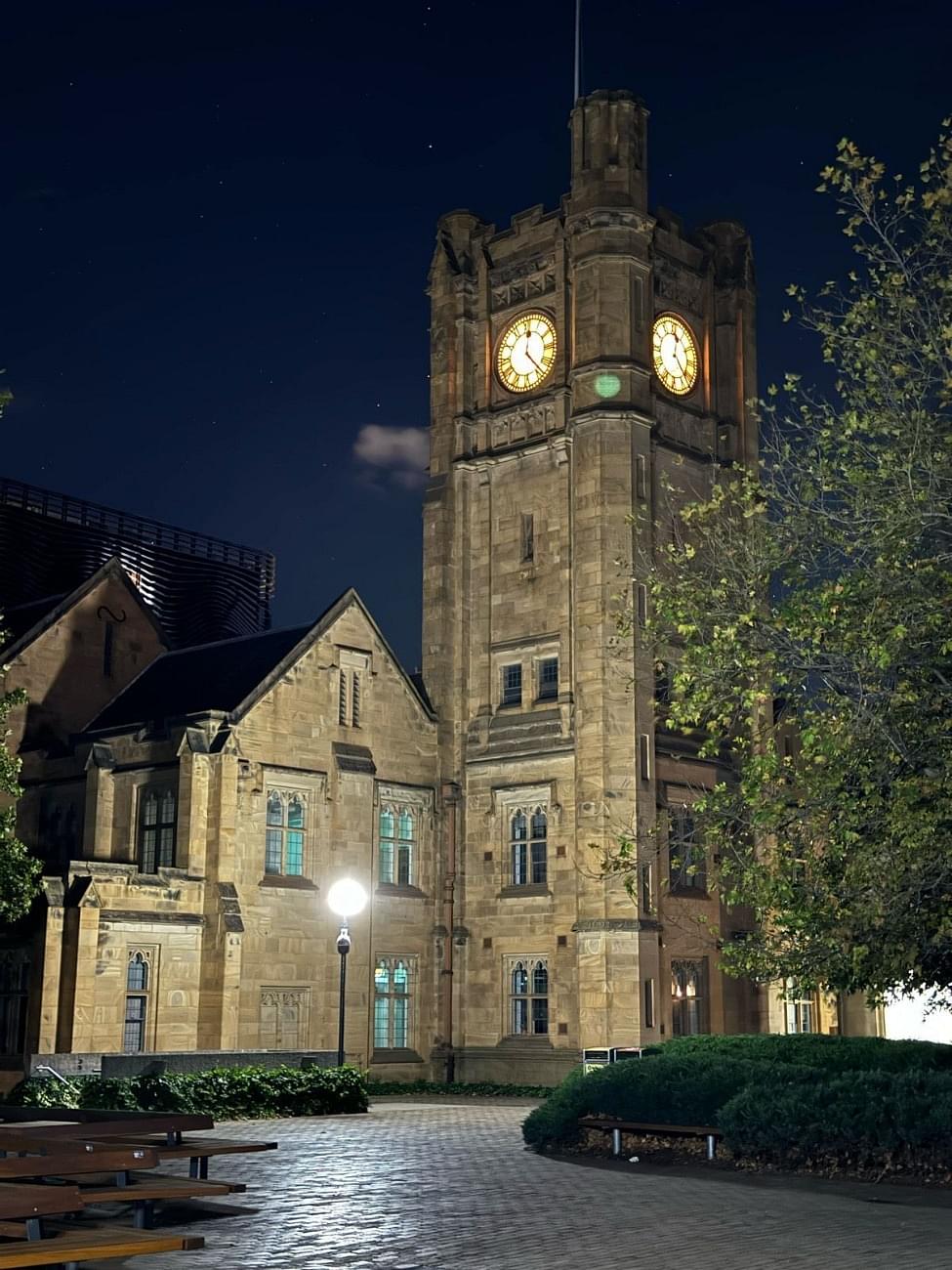
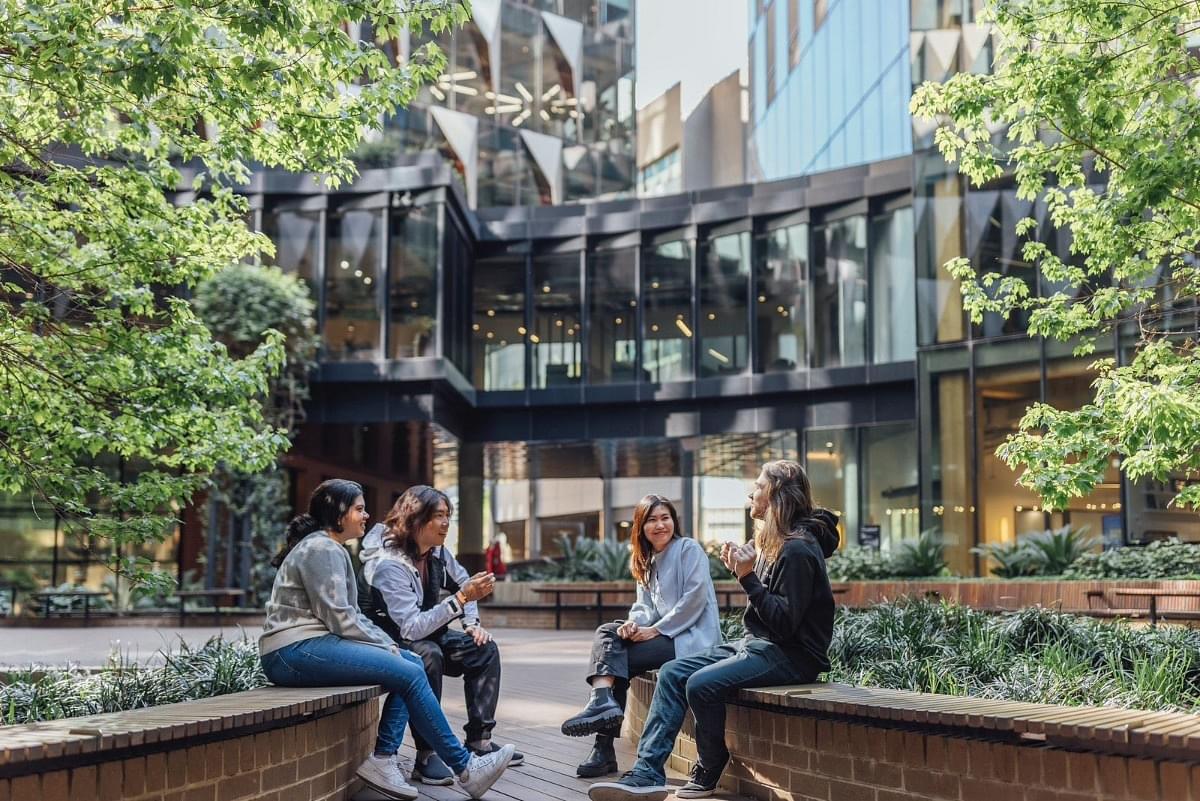
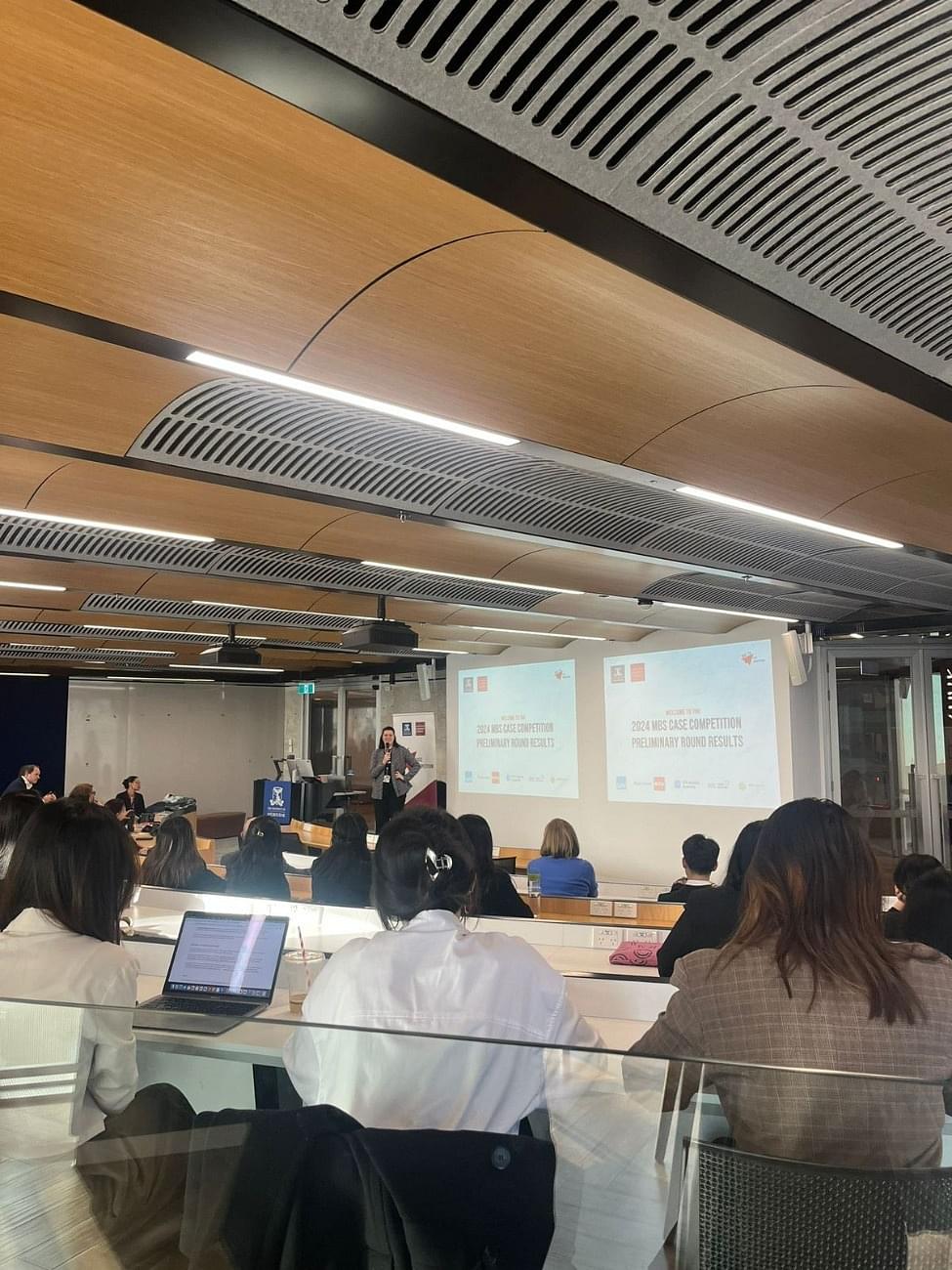
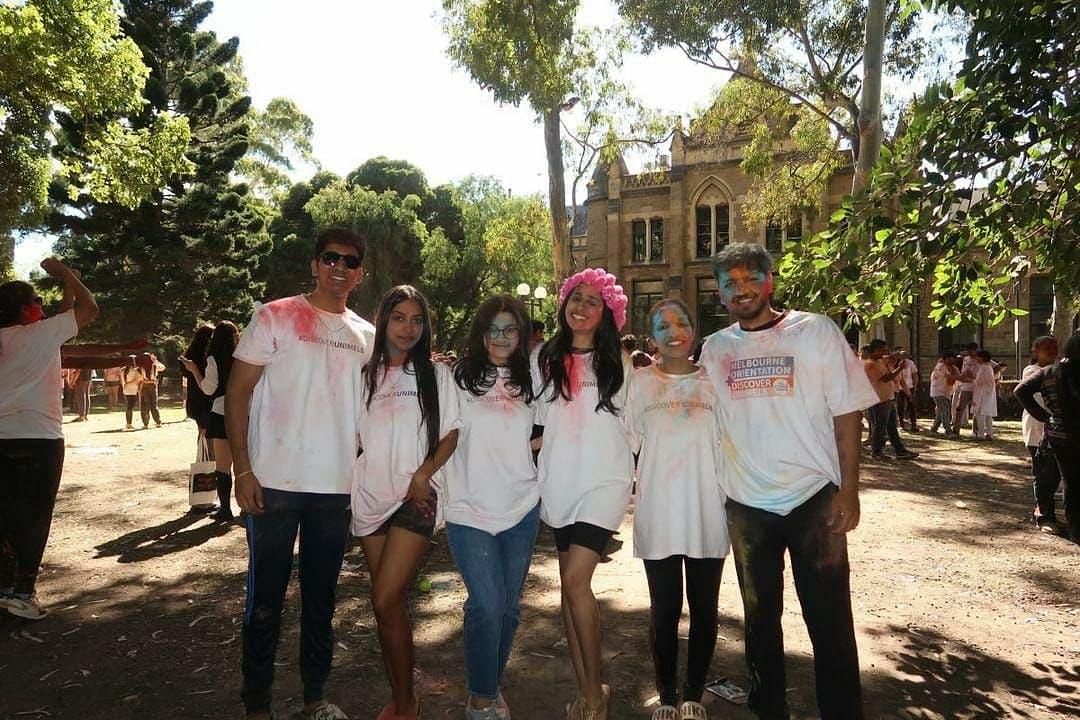
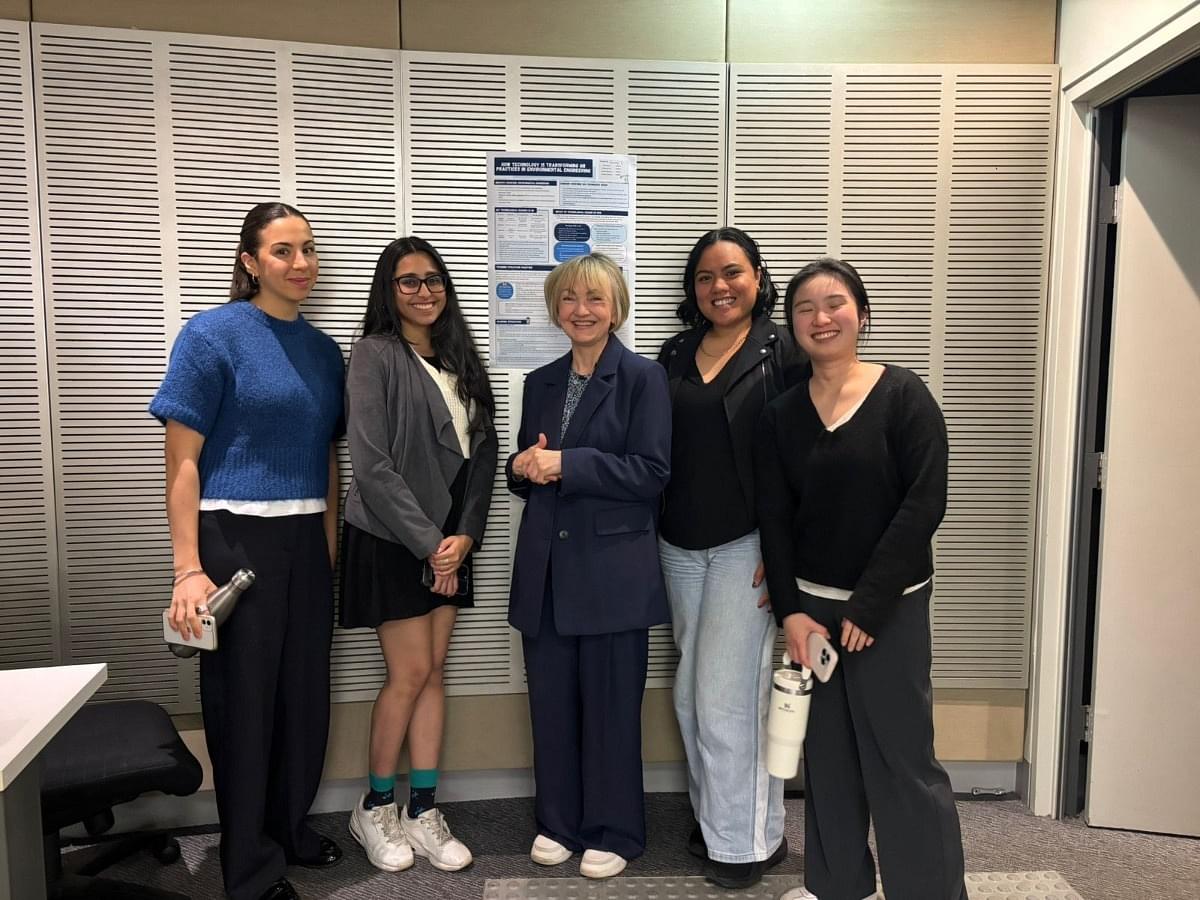
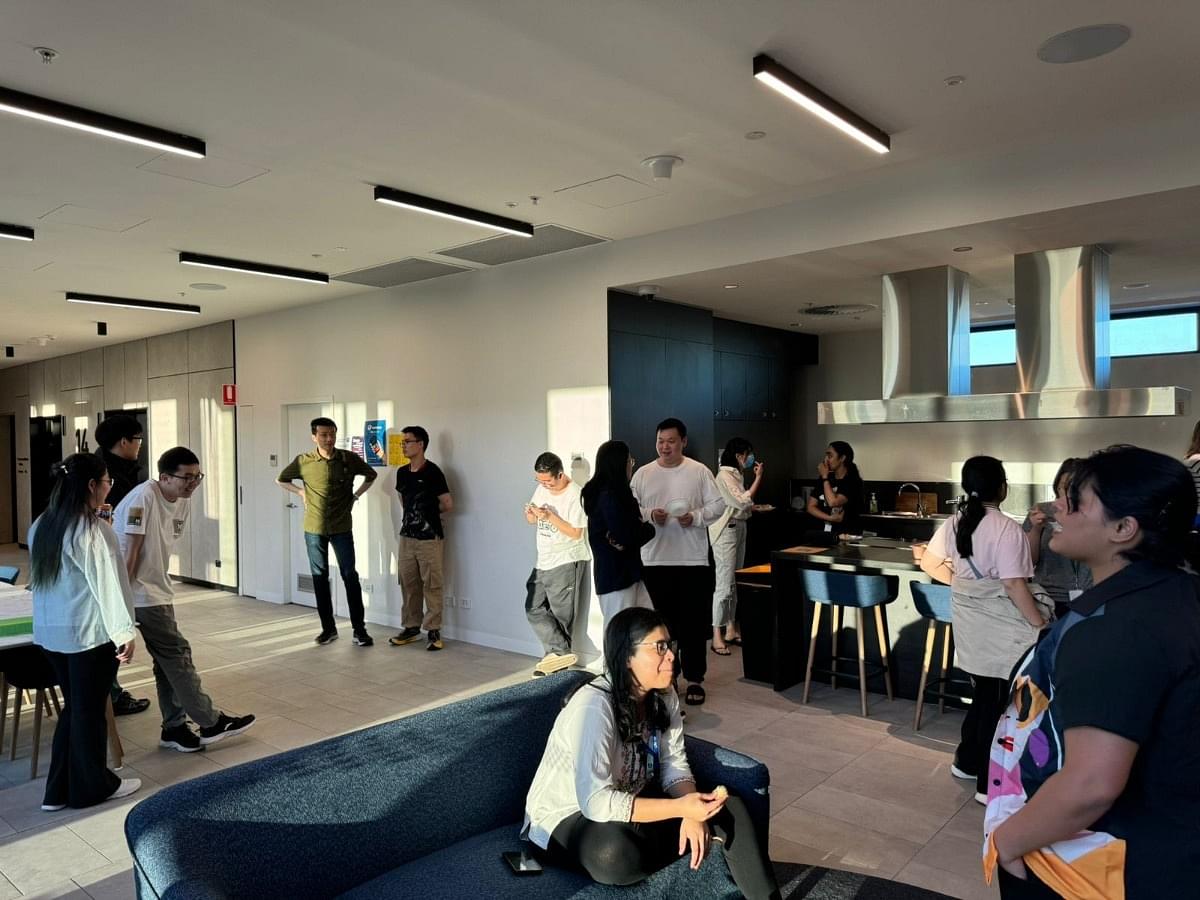

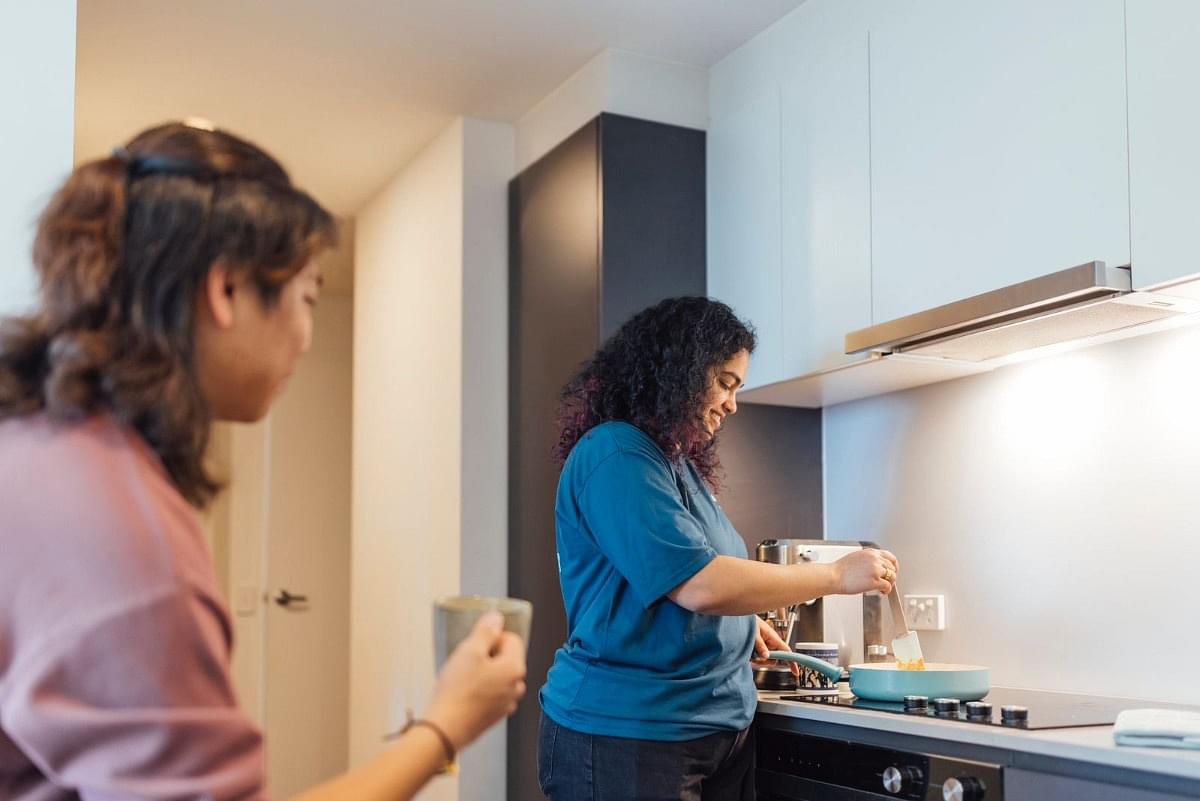
Likes
- The courses available to choose is probably the best thing about the uni. You get to learn and work with the best talent pool and professors
- The campus facility are amazing, ranging from different clubs, the sports centre and the student support center
- Lastly, if you an extrovert, you get to make some really good friends across different cultures.
Dislikes
- The timing of the classes are little hectic, but it also depends on the subjects you choose. Sometimes they tend to overlap
- Certain subjects need prerequisites which can not be fulfilled if you don't plan it out
- Compared to other universities, the fee is considerably high, and even the scholarship amount it less.
Likes
- University of Melbourne has a research oriented academic atmosphere which fosters independent thought and critical thinking skills
- The university also provides a unique course structure where students have flexibility on which subjects/areas of expertise they want to learn and study.
- Vibrant atmosphere, beautiful campus and work-life balance
Dislikes
- The faculty to student ratio is quite low in UniMelb which makes it hard to get one-to-one time with your tutors and professors
- Academic advisors can often be quite busy as they are often juggling many different duties at once.
- The on-campus accomodations are a bit expensive
Likes
- The hands on lab session that happens for every subjeect
- A lot of opportunities to research and connect with industry
- Free food, lot of events, and activities
Dislikes
- I don't really dislike anything about the University
- The tuition fee is a bit much and it keeps increasing each year (should offer more scholarship's)
- Most the events has some kind of limited entry
Likes
- - Free food all over the campus
- - Popular professors (who teach excellently)
- - Comfortable lecture halls
Dislikes
- - Buildings are quite far from each other
- - Keep increasing the fee by 10% every year
- - Some subjects are set particularly hard
Scholarship
- I was fortunate to receive two prestigious scholarships from the University of Melbourne. The first was the Business and Economics Scholarship, a one-off grant of $10,000, awarded to recognize academic excellence and potential in the field. The second was the Graduate Scholarship, which provided a 25% reduction in my regular tuition fees, reflecting my strong academic performance and commitment to furthering my education.
- These scholarships are highly competitive, and approximately 20% of students in my cohort received either one or both of these awards. It was an honor to be among the recipients, as it validated my dedication to academics and professional growth while also easing the financial burden of pursuing a world-class education.
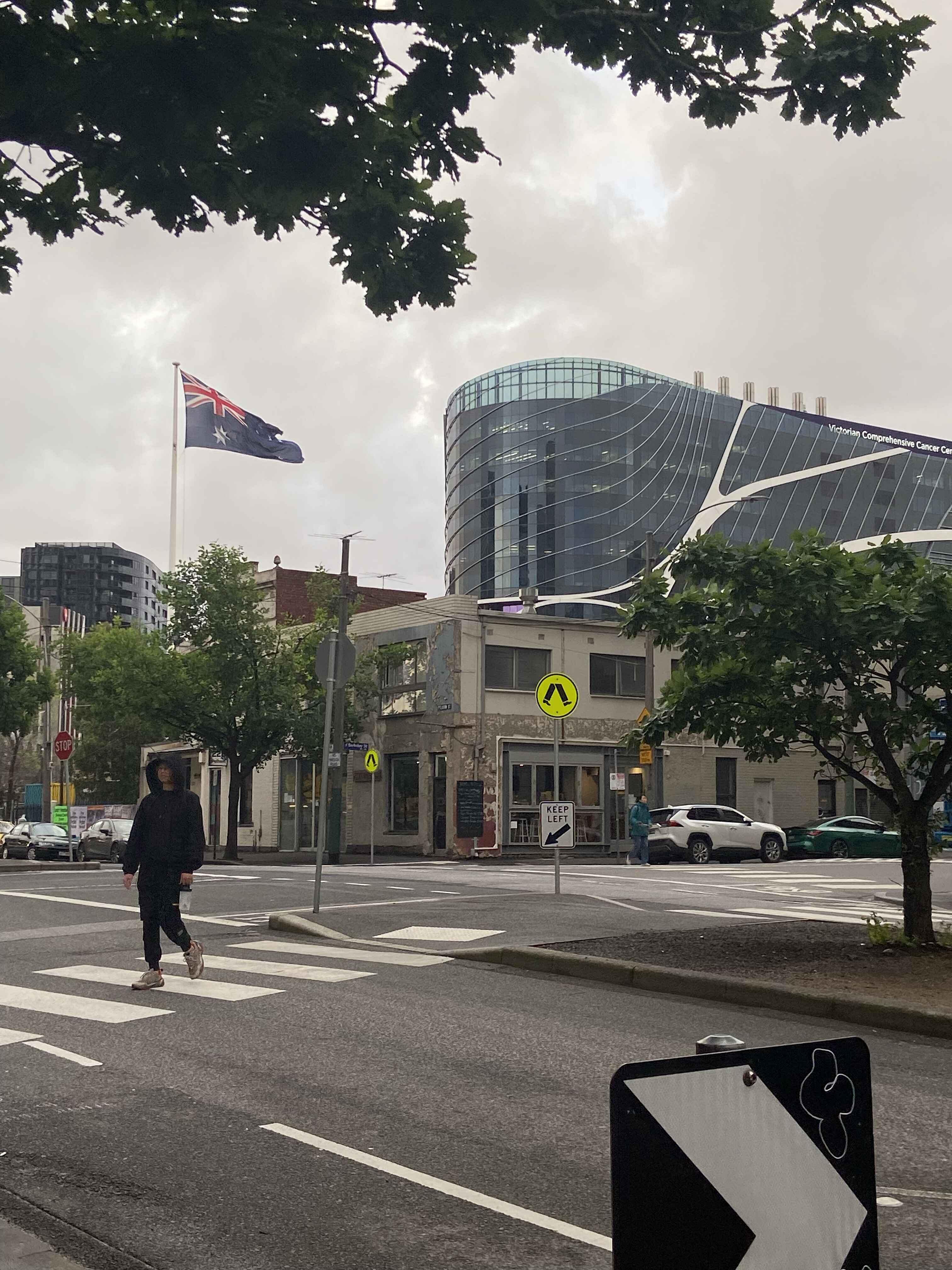
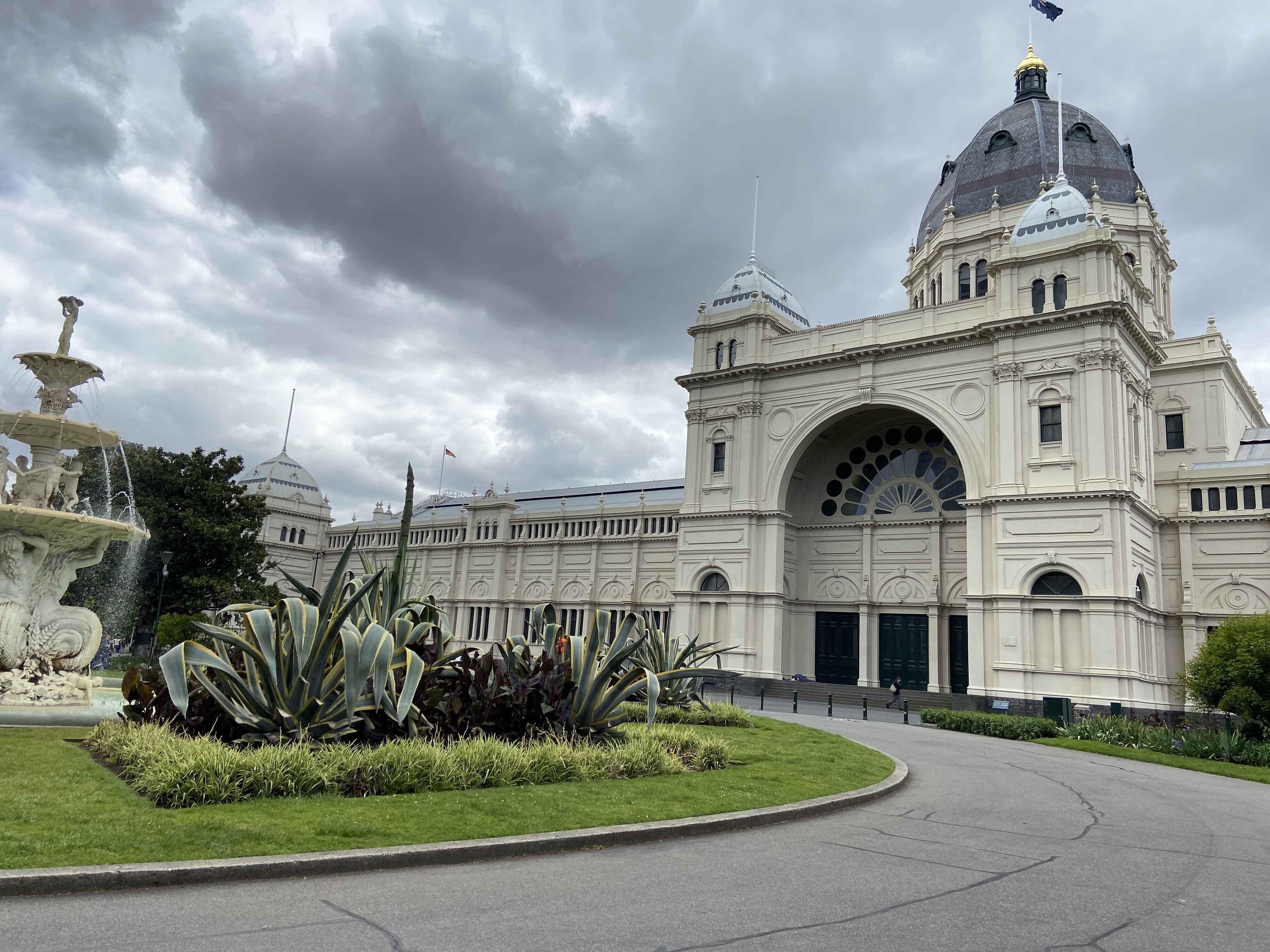
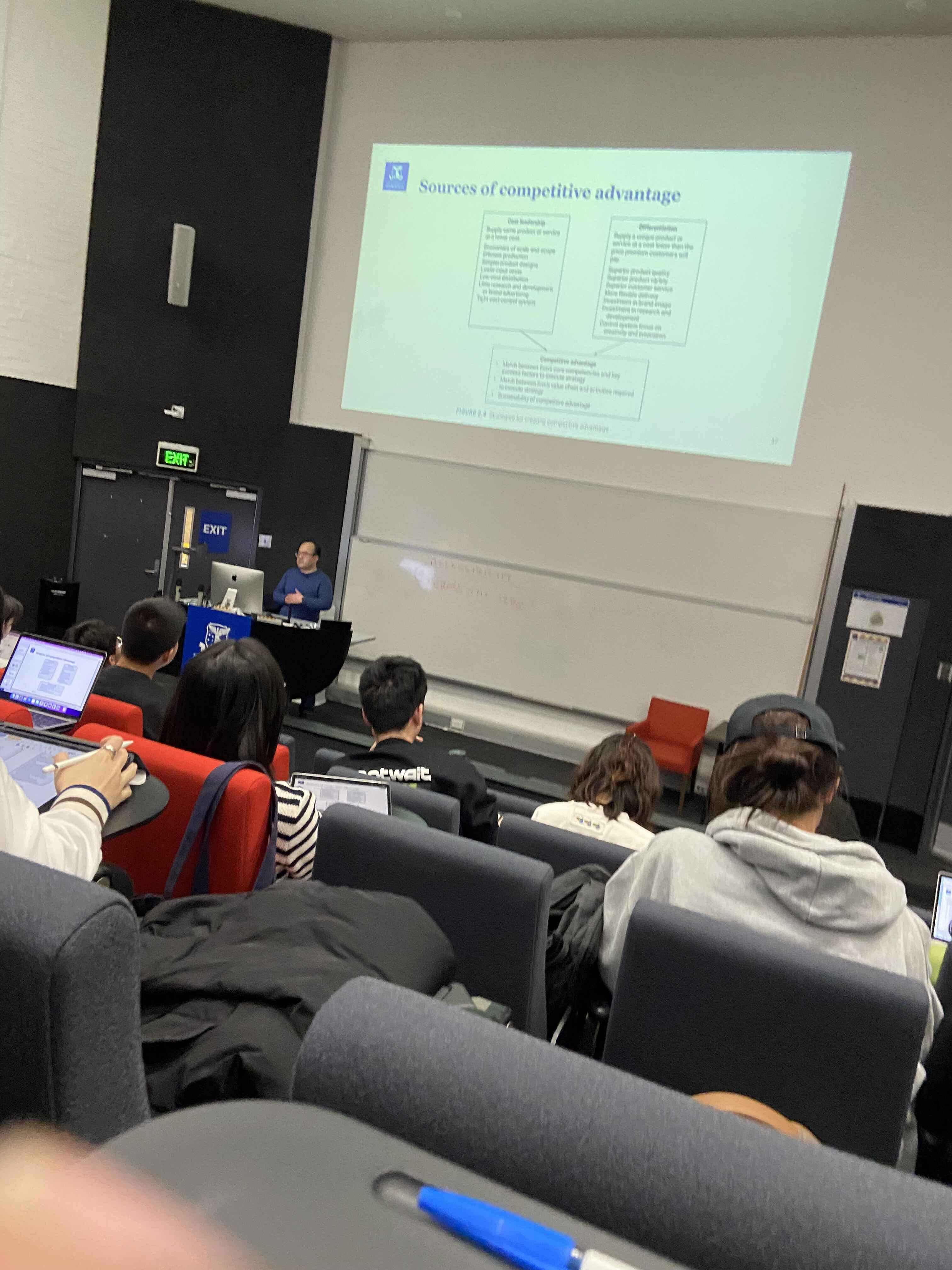
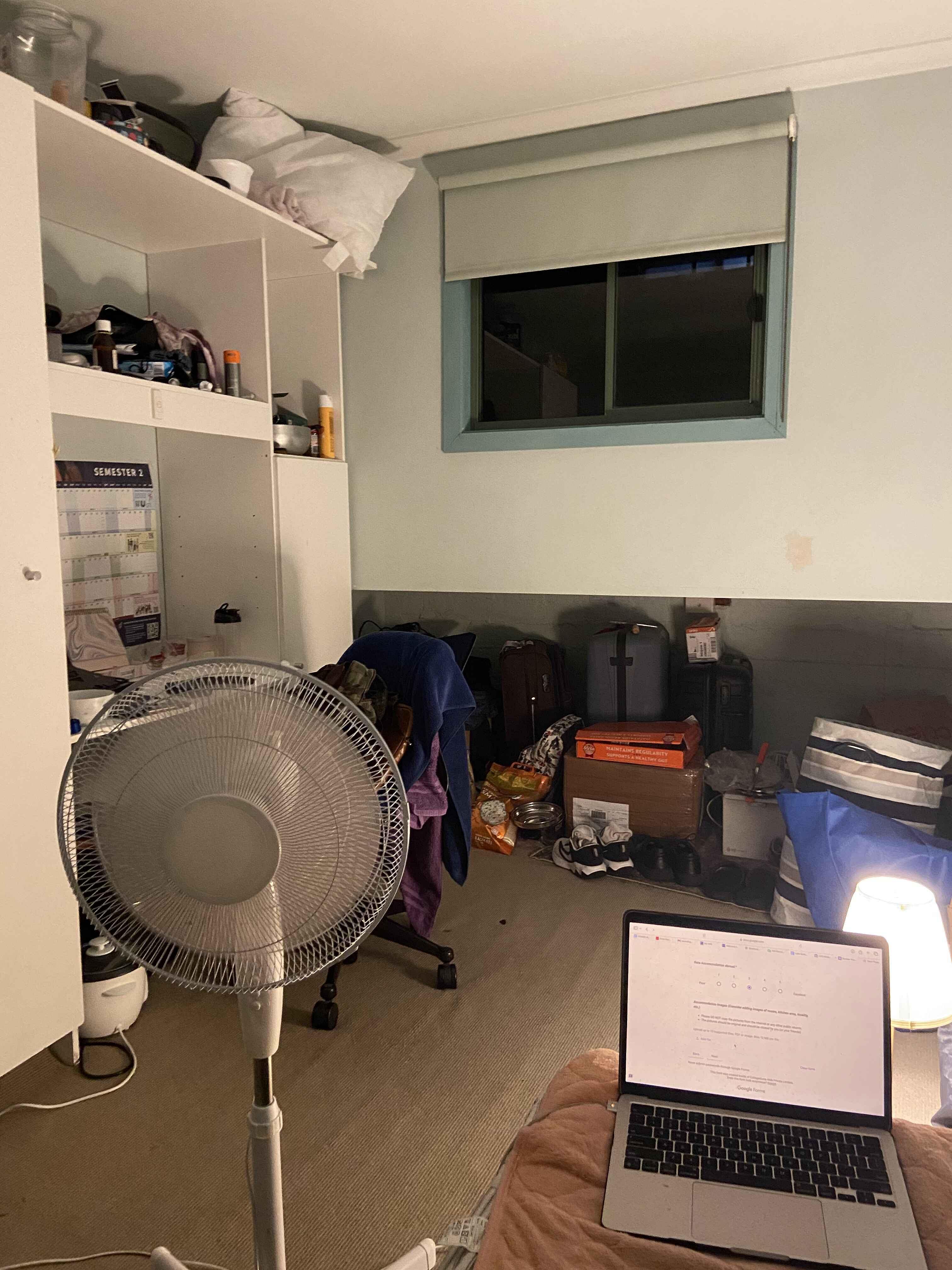
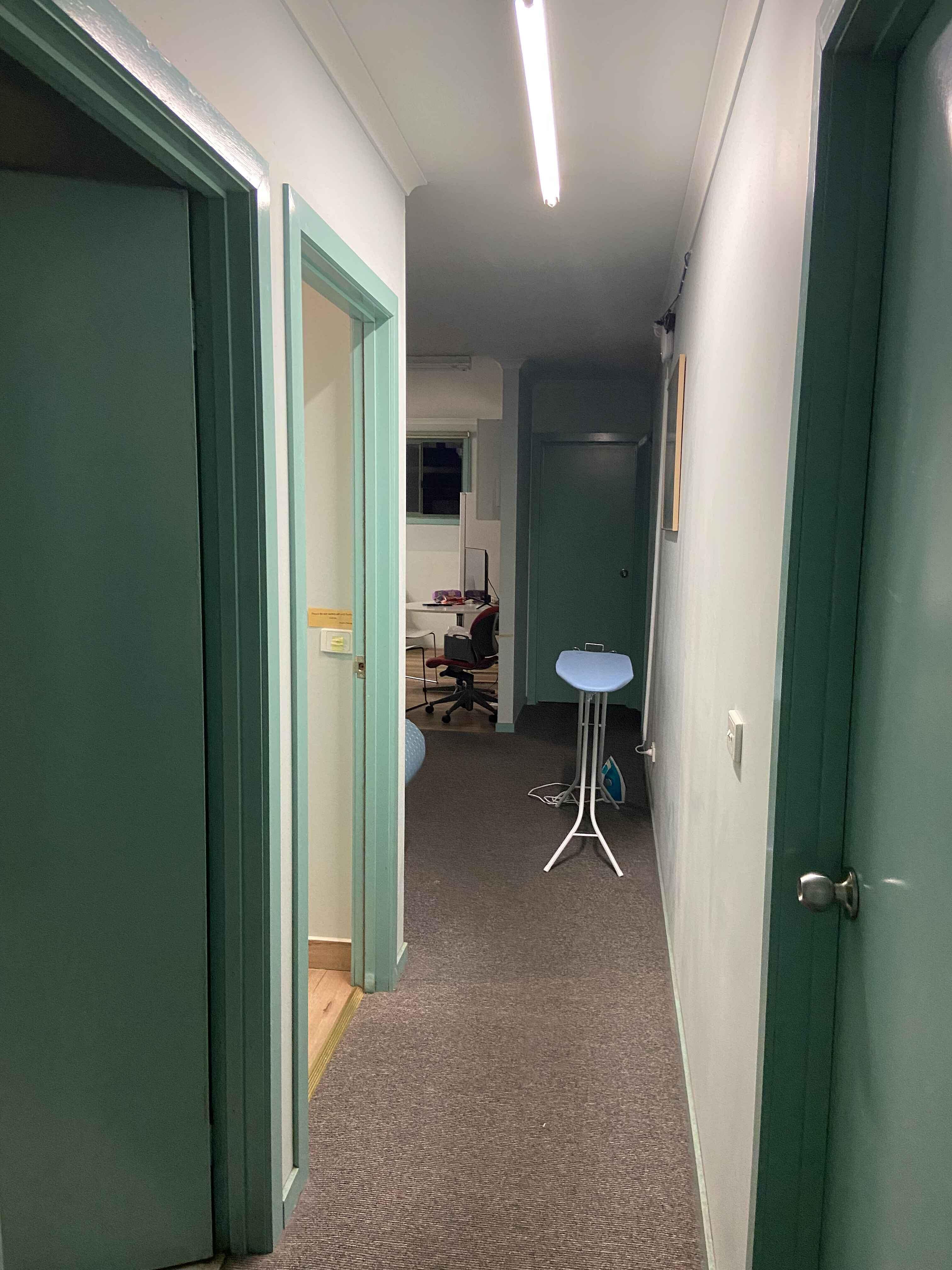
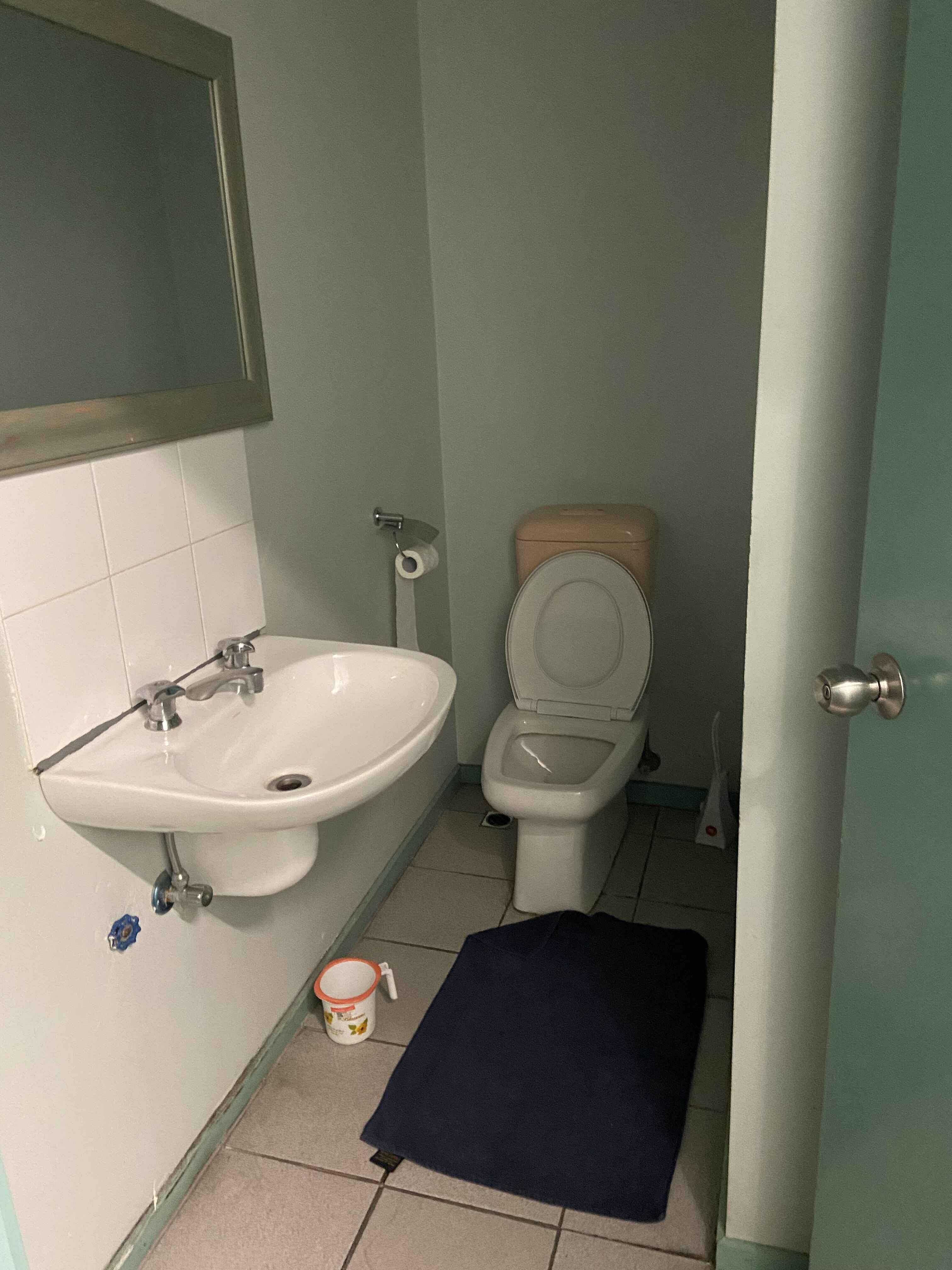
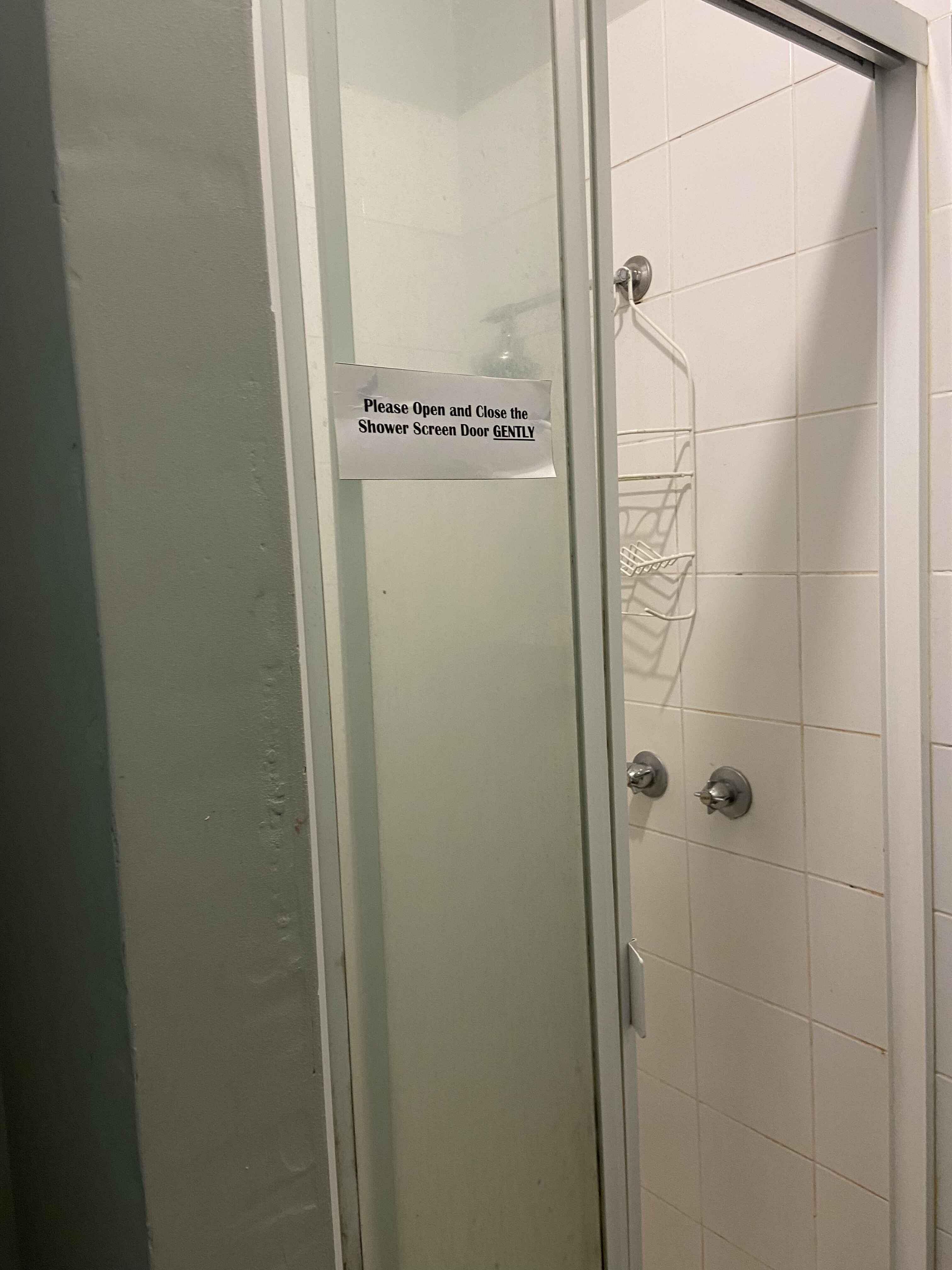
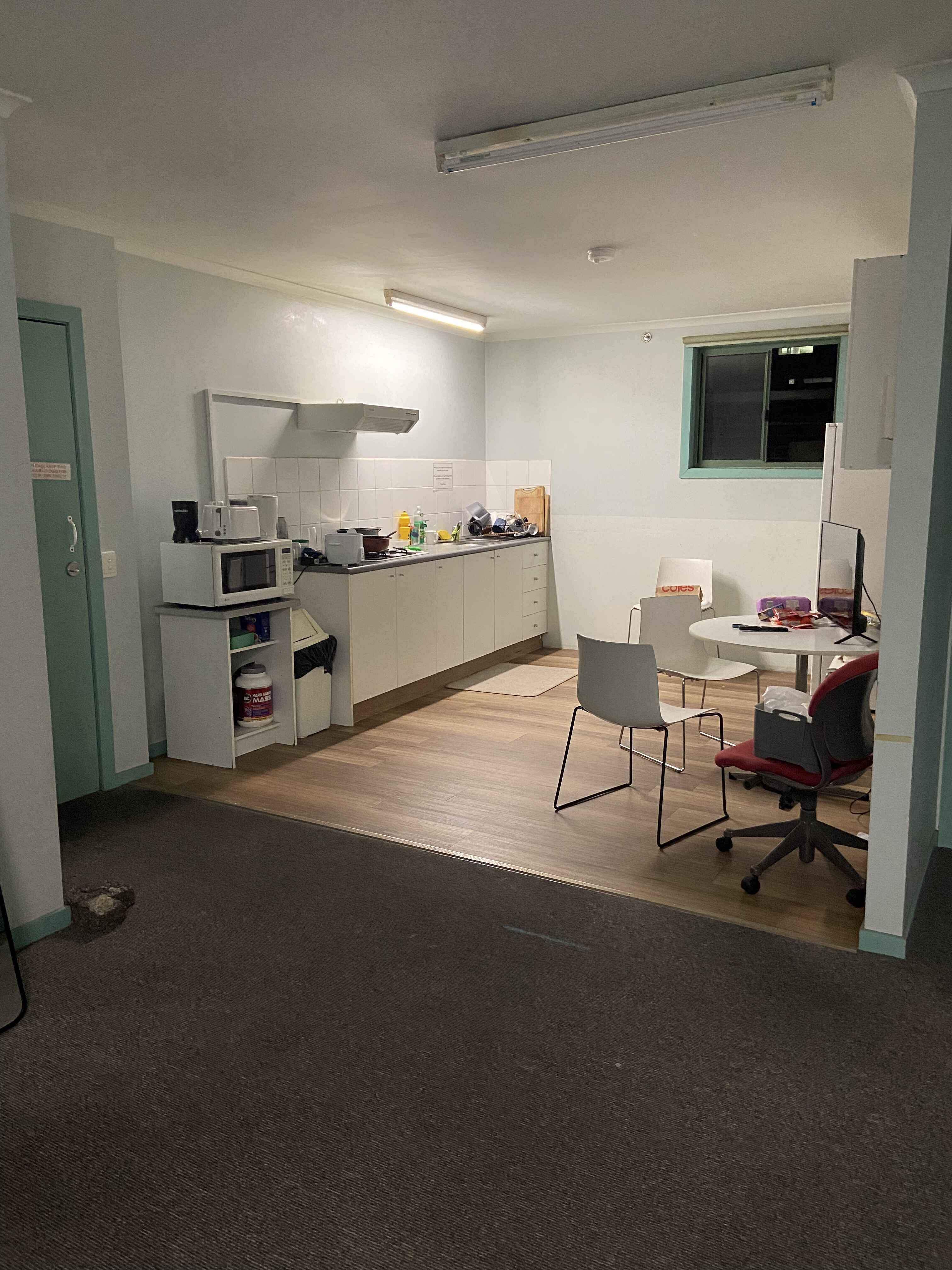
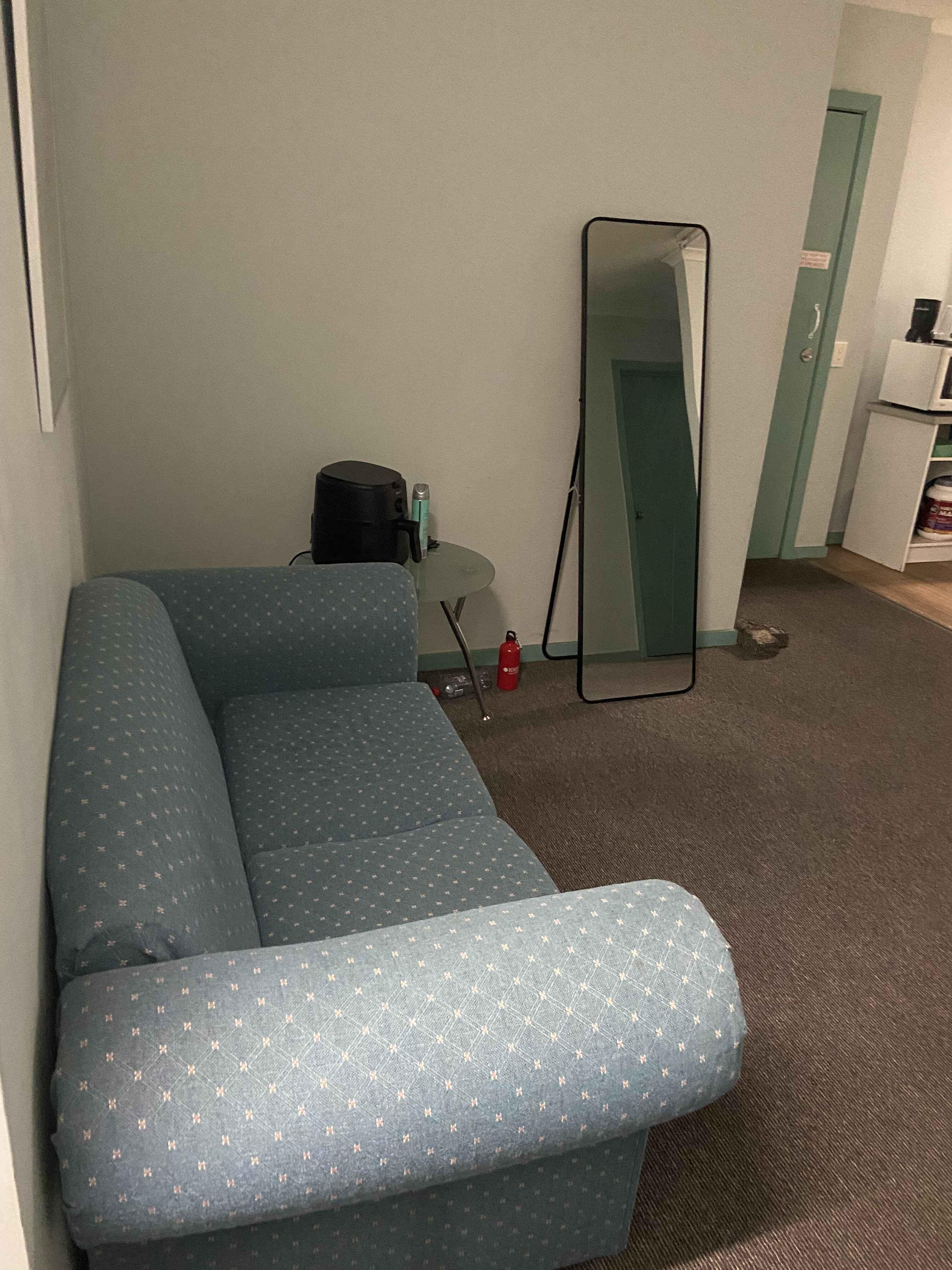
Likes
- Diversity: We were a class of 40, coming from 13 countries. We all came from diverse industries- consulting, banking, tech, media, healthcare, etc. The average work ex was 5 years, but the range was 2-20 years. Diversity made learning fun & engaging.
- Curriculum: Practical course structure; the course did not focus on rote learning. Each subject had multiple live projects and we worked on them in syndicates. Operations' and Data Analysis' projects were two of the toughest ones!
- Alumni: MBS alums are some of the biggest names in Australia. Since there is no concept of campus placement in Australia, these alums are the primary source of jobs for students. Networking with these alums become extremely easy when you are in MBS.
Dislikes
- Career Support: Not at par with other leading global schools. The career services do help with connecting you to the right resources but do not take the pain of ensuring you get a job. Most top global MBAs work to get you a job. NOT THIS ONE.
- The UniMelb campus is super pretty with victorian architecture, greenery and great infrastructure. However, the MBS building is not as impressive. Its a small building with limited facilities. However, we can always access UniMelb if required
Overview
The admission process is simple:
1. Application: There is no fee to apply, unless you are shortlisted. After shortlist, you pay AUD100. I personally liked this since most B-schools charge $100 for applying.
2. GMAT/GRE: You need to get a competitive GMAT score. For Indians, anything above 700 should be fine. The higher you go, the better scholarship you will receive. There is no specific GMAT cutoff. The admission also depends on factors like application round, academics, previous experience, etc. 3. IELTS/PTE: Need a 6.5 or above in IELTS. This is basically a hygiene check. Pro Tip: If you have a high GMAT verbal, you can ask for IELTS waiver from the university. Although, after an admit, you will need to give IELTS for the visa process.
4. Interview: A single round of interview with the career services. It was a pretty casual conversation with basic behaviourial questions. The call was focused on setting realistic expectations from the MBA.
Scholarship
In received the MBS scholarship. For this particular scholarship, I did not have to apply. Every student is considered for this scholarship if they are admitted into the program. There were other scholarships as well which required applications. However, as far as I recall, you can't combine scholarships. IMPORTANT: THE DEADLINE FOR THESE SCHOLARSHIPS IS USUALLY THE END OF ROUND 1 (November). GMAT is the biggest criteria for getting the MBS Scholarship. Higher scores ensure better scholarship. If your profile is good and if you have other offers, you can easily negotiate for a bigger scholarship.
Likes
- The most likeable thing is that we get a good blend of research faculty and industry-aligned faculties.
Overview
If you are looking for research then Unimel is one of the best, but from my experience, the syllabus is good which would make you an extrovert but it feels a bit of repetition.
Likes
- Quality of teaching, Infrastructure
Dislikes
- Sem is only for 4 months so I feel it is quite fast-paced, No placements
Overview
I chose this university because of multiple factors: - Ranking - Teaching - Course structure I would say the overall experience is pretty good. I chose to do a Master of International Business because I feel it brings to the table a lot more with regards to the International aspect and adds a global perspective to all the subjects.
















Comments
Found 3 Comments
To get admission in the Ph.D in Science program of the University of Melbourne you must have a masters degree in a relevant discipline, including a substantial research component with a WAM of at least 75%. Students who have graduated from other universities must also have a Referee report and Endorsement from a prospective supervisor. The criteria considered in the admission selection process are mentioned below.
The University of Melbourne offers Ph.D in Science in six disciplines: Bioscience, Chemistry, Physics, Mathematics and Statistics, Ecosystem and Forest Sciences and Geography, Earth and Atmospheric Sciences. To be eligible for admission, you must have a masters degree in a relevant discipline, including a substantial research component with a WAM of at least 75%. Students who have graduated from other universities must also have a Referee report and Endorsement from a prospective supervisor.
If you are currently enrolled in an undergraduate degree at another institution or if you are willing to transfer from another institution, you need to apply directly through the university’s online application system. You may need to supply detailed subject information about subjects you have already completed at other institutions if you wish to be assessed for advanced standing.